
For daily news visit us at wbj.pl Since 1994 Poland’s leading business magazine in English WE STAND WITH UKRAINE WARSAW BUSINESS JOURNAL DECEMBER - JANUARY 2022/23 ~ No. 12 (75). PLN 30.00 (VAT 8% included) ISSN 2543-9529 INDEX-RUCH-332-127 PLUS: PREDICTIONS FOR HIGHER EDUCATION | AML EXPLAINED BY ING HUBS POLAND | DISCOUNT STORE BOOM A YEAR IN REVIEW AND PREDICTIONS FOR 2023







Lorem ipsum
6 In Review
News
12 Opinion
Poland is ready to go nuclear by Sergiusz Prokurat
Are the World Cup or Euro really worth it? by Sergiusz Prokurat

15 Lokale Immobilia
News
Interview with Richard Hallward, CEO and founder of CEEQA
20 Features
2022 Summary
Discount Stores Boom! by Anna Rzhevkina
Freelancers in Poland by Anna Rzhevkina


Competition law by Karolina KlimekKaźmierczyk and Robert Mikulski
International trade and sustainability by Agnieszka Grabowska-Dubiel
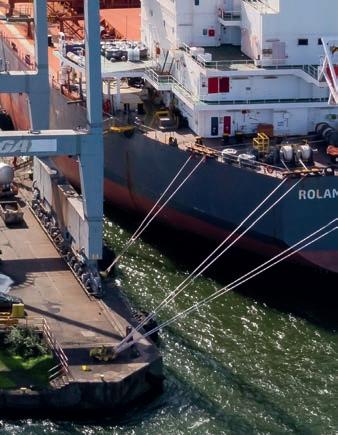
28 Interview
Dr. Mehmet Göktürk İplikçioğlu
47 Tech News
Anti-money Laundering by Morten Lindholm
Interview with Karol Wojtczak, AML expert from ING Hubs Poland
Digital marketing insights by Jerzy Kamecki
57
Life + Style
Designer Out
UNIQLO
Classicwine.pl
62 Events
Cover Photograph: by Adam Borkowski/Unsplash.com

WBJ.PL 1 DEC/JAN
15 34 12 6 57
PORTRAIT BY KEVIN DEMARIA
PUBLISHER'S NOTE
2022 – THE YEAR IN REVIEW
It has been a sad and shocking year in many ways. Top of the list is the ongoing war in Ukraine that has caused terrible losses for many people and families and brought with it so many tragic effects. The pandemic’s after-effects have also influenced the year in terms of growing uncontrollable inflation, uncertainties in supply chains, and economic stagnation (or, in some parts of the world, recession).
The year strongly impacted the real estate sector and consumers with high credits in PLN, as interest rates growing to double digits led to a significant drop in appetite for new flat sales and headaches for apartment owners with the increasing cost of credits, electricity, and heating.
Is there anything positive to take from 2022, then? Business in Poland has not been all bad. Actually, it is safe to say that most companies have delivered quite strong results.
Unemployment in Poland is still very low, at 3% in October. Poland's consumption of the three main liquid fuels (motor gasoline, diesel, and LPG) increased by only 3% in the first three quarters of 2022, despite enormous hikes in prices. Traffic in shopping centers is beating 2019 with record numbers, and tour operators are sold out or report heavy demand.
2023 –Hopes & Expectations
I am a positive person – some will even call me an over-optimist – so I believe 2023 will be good and better than 2022. During my recent meetings with other business leaders and owners, I have been asking how business is going, and I have heard many different answers: Great! Sales are up 30% YOY, and, thanks to higher prices, profitability is also up. But, of course, I also heard: Some numbers are dropping now, as our products are not needed when people are worried about the future and the growing cost of living. Yet, investments in Poland are still going strong. So, perhaps we are finally seeing the effects of near-shoring, which I have been predicting will be a goldmine for Poland when it takes off.
The most significant change to expect in 2023 is that we will need to be more selective about which industry, company, and products we are talking about when evaluating success. Clearly, we no longer all work under the same market circumstances.
It is also clear that consumers have started paying attention to discounts, sales, and special offers – not just accepting the first and best price but looking for deals, etc.
We are entering a new year that will likely be tough to a certain degree. My predictions are that the first half of 2023 will be neutral in terms of growth and investments, but I have hopes that as we near the summer, the visibility and the first half of the year results will encourage companies to start making more aggressive plans for H2.
I wish you a safe end to the year and all the best in 2023.
MORTEN LINDHOLM
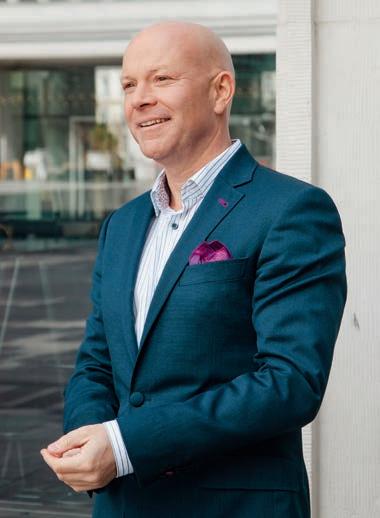
2 DECEMBER - JANUARY 2022/23 WARSAW BUSINESS JOURNAL
PORTRAIT BY KEVIN DEMARIA

GUEST THIS ISSUE
Dr.Mehmet Göktürk İplikçioğlu
is a doyen of the international higher education sector. He started his business career when he was a 21-yearold master's student in Vienna. Now twenty years later, the company he founded is one of the largest academic consulting companies in the world. His companies
UNICEDU, UNIVERNA and IPLIKCIOGLU & PARTNERS offer educational services, educational consulting, and legal consulting, respectively, in several different countries.
Interview on page 28
CONTRIBUTORS
Karol Wojtczak is Tribe Lead at ING Hubs Poland. He is also an adjunct professor at Kozminski University in Warsaw, in Compliance and AML Postgraduate Studies. At ING, Karol leads shared services functions for AML investigations at the regional and global level. He has been a Co-Chair of the ACAMS Poland Chapter since 2018.
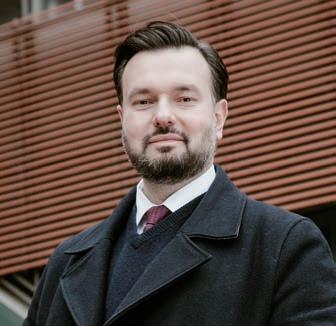
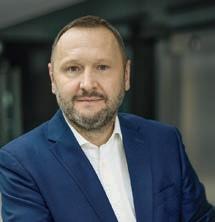
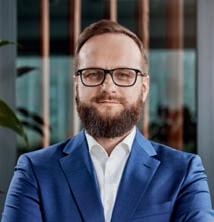
Interview begins on Page 51
Karolina Klimek-Kaźmierczyk – attorney-at-law in the law firm BRILLAW by Mikulski & Partners, expert in the Family Enterprise Initiative (IFR), deals with compliance, competition law, public procurement, contract law, as well as day-to-day legal consulting for business. Article begins on Page 38
Morten Lindholm
Editor-in-Chief/Publisher mlindholm@valkea.com

Kevin Demaria
Art Director kdemaria@valkea.com
Jessica Sirotin Editor
Krzysztof Maciejewski Business & Web Editor kmaciejewski@wbj.com
Contributors
Nikodem Chinowski
Sergiusz Prokurat
Anna Rzhevkina
Krystyna Spark
Alex Webber
Sales Izabela Kaysiewicz ikaysiewicz@valkea.com
Katarzyna Pomierna kpomierna@valkea.com

Print & Distribution
Krzysztof Wiliński dystrybucja@valkea.com
Event Director, Valkea Events
Magda Gajewska mgajewska@valkea.com
Robert Mikulski – attorney at law, managing partner in the law firm BRILLAW by Mikulski & Partners, Family Enterprise Initiative (IFR) expert, specialises in corporate law, public procurement, competition law, and is a member of the board directors and supervisory board of several companies. Article begins on Page 38
Contact:
phone: +48 22 257 75 00
fax: +48 22 257 75 99 e-mail: wbj@wbj.pl WBJ.pl
For enquiries,subscriptions-related please email us at wbj@wbj.pl
WarsawBusinessJournal @wbjpl
All photographs used in this issue are courtesy of partners and companies unless specified otherwise.
Copyright © 2022 by Valkea Media SA
All rights reserved. This publication or any portion thereof may not be reproduced or used in any manner whatsoever without the express written permission of the publisher.
Published by ul. Jerzego Ficowskiego
4 DECEMBER - JANUARY 2022/23 WARSAW BUSINESS JOURNAL
15 Valkea Media S.A.01-747 Warszawa Tomasz Opiela, CEONIP: 525-21-77-350 www.valkea.com To subscribe through RUCH SA: www.prenumerata.ruch.com.pl, prenumerata@ruch.com.pl, 801 800 803

 Ministerstwo Kultury i Dziedzictwa Narodowego
Ministerstwo Kultury i Dziedzictwa Narodowego
POLAND ESTABLISHES THE WEST POMERANIAN HYDROGEN VALLEY
The Port of SzczecinŚwinoujście, alongside other parties from across the business, technology, and R&D sectors, has signed a letter of intent to create the West Pomeranian Hydrogen Valley.
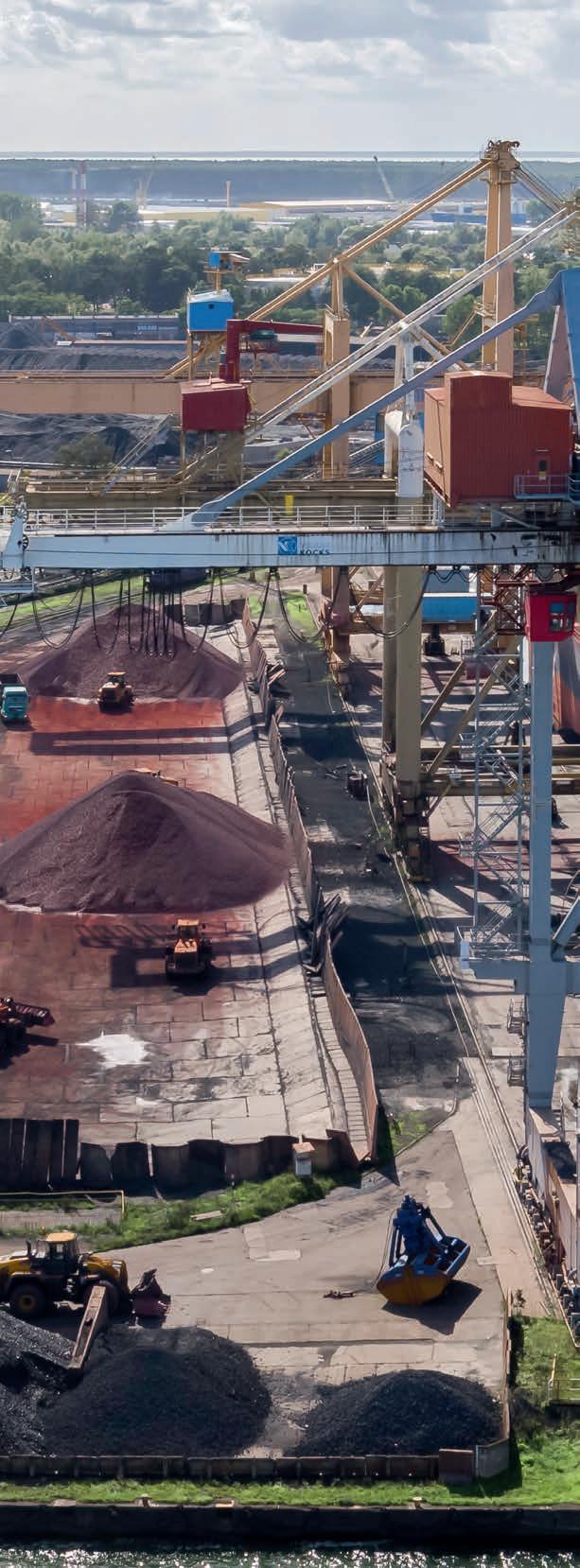
Hydrogen valleys are innovative projects created in areas that possess the necessary industrial and natural resources to build a low-emission energy system and develop the country’s energy security. A total of five hydrogen valleys are expected to be implemented across Poland. The first was set up in the Podkarpackie region in 2021.
According to Deputy Minister of Climate and Environment
Ireneusz Zyska, Poland has the ambition and the potential to become an exporter of mature hydrogen technologies during this decade.
6 DECEMBER - JANUARY 2022/23 WARSAW BUSINESS JOURNAL
IN
REVIEW
SHUTTERSTOCK
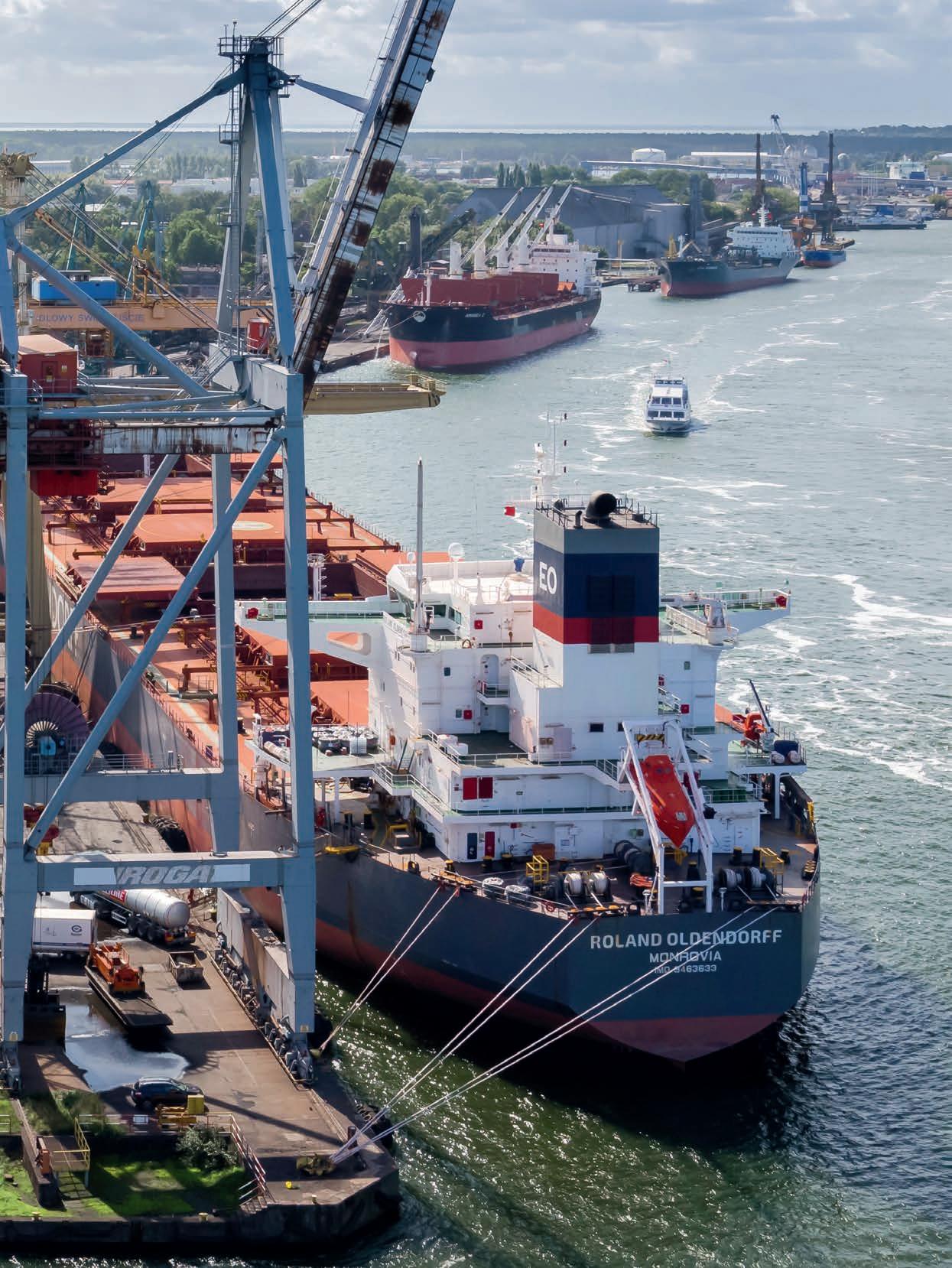
BUSINESS
Google reopens office in Kraków
U.S. tech giant Google decided to reopen its office in Krakow. Along with Warsaw, Krakow is set to become one of Google's major cloud technology development centers. Poland is already Google’s largest center for this kind of technology development in Europe. Google already had an office in Krakow between 2007 and 2015, but the company temporarily suspended its operations there.
“Our Krakow team will run fully independent projects creating key services and tools - not only those used by Google cloud clients but also those responsible for how the global internet works today,” stated Dan Decasper, vice president and head of Google’s Polish engineering teams.
DOMESTIC Population in Poland will fall by 4.4 million people by 2050 – Statistics Poland
Poland has entered a demographic crisis, and by 2050 the population will fall by 4.4 million people, Statistics Poland has reported.
"The decrease in the number of births recorded in 2021 confirms that Poland has entered another period of demographic crisis (which temporarily took place in 1997-2007), but the current one may probably be a longer trend," GUS wrote.
By 2050, the population's median age will be more than 52, which is 11 years more than present, the report estimated.
BUSINESS Saudi fuel giant takes over 30% stake in Gdansk Refinery
The world’s largest oil-exporting company, Saudi Aramco, has acquired a 30% equity interest in a Gdansk refinery to expand its operations in Europe. In addition, Saudi Aramco also received a 100% interest in an associated wholesale business and 50% in
a plane fuel marketing joint venture with BP Europa SE. Aramco completed the deals through its subsidiary Aramco Overseas Company based in the Netherlands.
“These investments are part of our efforts towards cementing Aramco’s presence in a key European market and provide a unique opportunity to develop new liquids-to-chemicals pathways, with hopes of expanding our global downstream footprint and supporting the diversification of our portfolio,” said Aramco’s Senior Vice President of Downstream, Mohammed Al Qahtani.
DOMESTIC Polish cabinet adopts draft bill to freeze gas prices in 2023
The Polish cabinet adopted a draft bill freezing gas prices in 2023 for all households and sensitive recipients, with maximum gas price capped at some PLN 200 per MWh. However, the overall cost would be higher because regular VAT on gas will be reintroduced from January after the period of tax reliefs.
Selected recipients can apply for a return of VAT on gas fuel. The income criterion was set at PLN 2,100 per person monthly in the case of singleperson households and PLN 1500 per person in the case of bigger households.
Climate and Environment Minister Anna Moskwa said last week that the cost of the solution is estimated at PLN 30 billion based on current prices.
STOCK MARKET WIG index set to grow 11% in 2023 - Goldman Sachs
Goldman Sachs forecasts that the WIG broad market index on the Warsaw Stock Exchange will increase by 11% in 2023. However, it also highlights the persistent geopolitical risk.
“With winter posing particular risks to European growth through the oil and gas channel, we remain cautious about exposure to Poland in the near term, but see opportunities in Q1 as the outlook for European growth becomes clearer," Goldman Sachs analysts said.
The analysts emphasize that shares of Polish banks are undervalued in relation to European ones.
WORK FORCE Growth in the number of knowledge-intensive occupations in Poland
According to the new edition of the Brain Business Jobs index, Poland is among the top 5 European nations with the fastest growth of knowledgeintensive occupations, the so-called brain business jobs. Since 2014, the number of brain business jobs in Poland has increased by 39%. This growth is faster than in countries such as the United Kingdom, Malta, and Estonia.
The report further notes, "The challenge for Poland is maintaining the growth of knowledge-intensive jobs in the leading capital region and the rest of the country. Eastern European nations are rapidly catching up to Western and Northern European nations in Brain Business concentration, relying on a strong supply of talents and lower wage costs for the talents and an otherwise competitive business climate."
JOB MARKET Pracuj Group expects employer activity to slow in Q4
Pracuj Group expects employer activity to slow in the fourth quarter. The number of recruiting projects may be down a few percent from the third quarter, also due to fewer work days, company officials said during a video conference on Thursday.
"Looking at employer activity, we should expect to see a slowdown in their activities. Some decisions will probably be postponed until early next year," CFO Gracjan Fiedorowicz said. According to the report, the number of recruitment projects sold on Pracuj.pl in the third quarter of 2022 was 136.1 thousand, compared to 136.8 thousand in the same period of 2021. Cumulatively, in the first nine months of this year, the number of recruitment projects sold reached 433.6 thousand and was 15.3% higher than a year ago.
8 DECEMBER - JANUARY 2022/23 WARSAW BUSINESS JOURNAL
IN REVIEW News SHUTTERSTOCK (3)
CELEBRATE THE NEW YEAR IN THE POLISH MOUNTAINS
Zakopane and Krynica Zdrój are still favorites for celebrating in the winter season, according to rental agency Sun & Snow. However, Karpacz, Krakow, and Gdańsk are also becoming more popular.

Have you booked your winter holidays yet?
Then it’s time to get started, according to holiday rental agency Sun & Snow. Data from their recent survey reveals that, although the booking activity for the Christmas and New Year’s Eve period is slightly lower than last year, some locations will soon be fully booked up.
“The current social situation, galloping inflation and international tensions have led to uncertainty and reluctance to making long-term plans. As a society, we are saving the most on services related to leisure and entertainment. At Sun & Snow, we are looking to the future with great caution. Having said that, when it comes to the New Year’s Eve offer, today in some locations – such as Zakopane, or Szklarska Poręba – we have less than 40% of apartments available. Apartments by the sea in such towns as Świnoujście or Gdańsk are also extremely popular”, says Mariola Skorupa, Sales and Marketing Director at Sun & Snow.
“We hope that the best moments for booking New Year’s Eve trips are still ahead of us, as we’ve just started to promote these offers. Slowly, we are also witnessing a shortage of apartments in a number of intimate locations, a case in point being our only Mazury Lake District destination, where we operate 8 houses for rent in Pasym. There, we have two more houses, located right by the lake, which are at the disposal of our tourists. A lot of enquiries and reservations we have received over the last couple of days are about Krynica Zdrój and Karpacz”, adds Skorupa.
According to data from the Sun & Snow survey, the current average level of bookings in mountain resorts has already reached 40%. Over 80% of available apartments have already been booked in Zakopane, and over 75% in Krynica Zdrój. Bookings are also already above 50% in Karpacz and Szklarska Poręba. Also, in Szczyrk and Białka Tatrzańska, popular mountain resorts, planned occupancy has already reached 47–48%.

Bookings in seaside apartments are also popular. So far Świnoujście (79%), Rewal (75%) and Międzyzdroje (67%) are already mostly booked. Karwia is also a trendy spot—half of the available apartments there have already been reserved.
When planning a trip for the upcoming New Year’s Eve or winter holidays, eligible families can still use their tourist voucher, which expires at the end of March 2023. For those who cannot take advantage of this benefit in time, Sun & Snow has prepared an offer to exchange the holiday voucher for a regular voucher with a timeline set for 2 years.
WBJ.PL 9 IN REVIEW Opinion
POLAND IS READY TO GO NUCLEAR
BY SERGIUSZ PROKURAT
t's simple. From an economic standpoint, nuclear power is cost-competitive with other types of electricity generation unless the country has direct access to low-cost fossil fuel options. In addition, on a Levelized Cost of Energy basis (LCOE), a nuclear power reactor offers multiple advantages in terms of security, reliability, and very low greenhouse gas emissions over its lifetime. Does this sound like the perfect energy source? Perhaps. However, some costs cannot be repaid with money.
Never before in Poland's history has social support for the construction of a nuclear power plant been so high – in a 2006 survey (CBOS), the percentage of those opposing nuclear energy was as much as 56%; currently, it is only 15% (IBRiS). This change is due to increased prices and the desire to become fully energy independent from Russia. Individually, many Poles believe that this switch to nuclear power will translate into personal profit, i.e., lower electricity bills. But this change in perception is not just because the war beyond Poland's eastern border. Education levels among Poles is about to reach European levels, and environmental awareness about the need to move away from fossil fuels (including coal) is also growing. So far, Polish society has been restrained by fears surrounding the use of nuclear power. In 1986, the accident at the nuclear power plant in Chernobyl, not far from the Polish border, paralyzed the societies of Central and Eastern Europe for three decades. Fears of a recurrence of this type of event blocked any political action on this issue for years. Putting this incident into context, it is interesting to consider that in the year of the Chernobyl accident, the construction of a Polish power plant was already underway in Żarnowiec (Poland). It was never completed. Since 1986, the issue of nuclear energy has never again been successfully raised in Poland. "Meltdown" was one of these annoying buzzwords that easily aroused anxiety.
Nevertheless, times do change. A bottom-up energy revolution is currently taking place in Poland, and renewable energy sources are gaining

10 DECEMBER - JANUARY 2022/23 WARSAW BUSINESS JOURNAL
SHUTTERSTOCK
OPINION
i
The Chernobyl disaster in 1986 had seemingly soured Poland on nuclear energy forever. However, the war in Ukraine and concerns over coal have inspired new plans for nuclear power in Poland.
more and more support. People are even increasingly investing in photovoltaic installations for their homes. But, unfortunately, more is needed to support the energy security of the entire country. Nuclear energy's potential is excellent, and, in 20 years, forecasts say, it could meet 25% to 40% of Polish demand, depending on the specificity of the plan for investments and the successful construction of plants in the country.
Clearly, nuclear power plants are not a short-term solution to Poland's need for energy security. Nuclear energy will take a dozen years to come online as a power source. Three nuclear power plants are to be built in Poland. Two of them are already being planned and will be equipped with two reactors with a capacity of 1 to 1.6 GW each. The third plant is still in the conceptual stage. Construction of the first is to begin in 2026. The first reactor will be launched by 2033, and the next after two years. One of these power plants will be built in the north of Poland, near Żarnowiec. The second power station will be built in Pątnów on the outskirts of Konin or in Bełchatów. Today, Poland relies upon power plants powered by brown coal, which is highly harmful to the environment. Investing in nuclear energy is challenging and costly relies upon several factors besides business, long-term plans, and construction facilities; it also depends on the diplomacy and alliances necessary for obtaining and implementing the technology. A country like Poland needs a reliable partner. It will not be the Germans. They are seeking
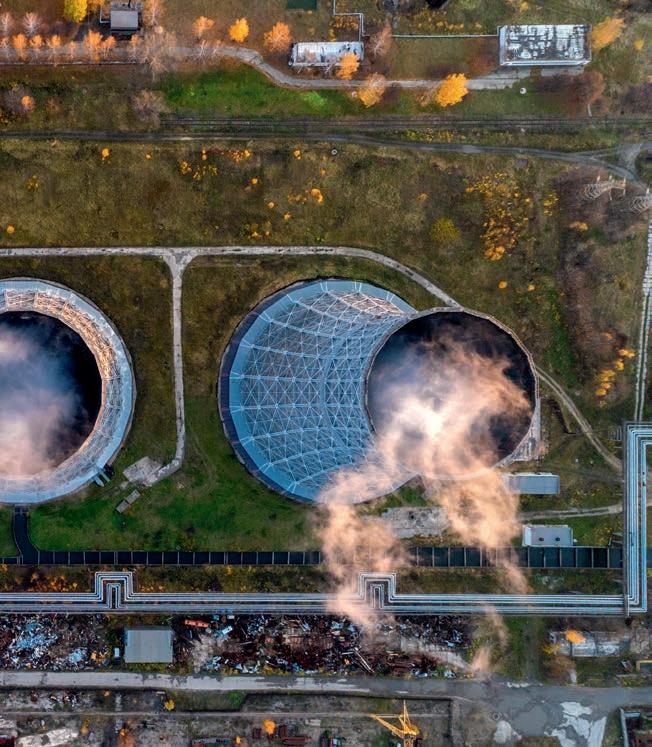
the denuclearization of the continent and are phasing out their own power plants in exchange for a stronger focus on renewable energy sources.
Poland has a valid agreement on cooperation in the nuclear energy sector with the US, but plenty of offers are on the table. Potential partners include the United States – the US government together with the energy company Westinghouse and the construction giant Bechtel; Korea – together with the KHNP concern in cooperation with the energy company ZE PAK, the owner of Polsat Zygmunt Solorz and the energy concern PGE; and France – together with the EDF concern. As the process develops, several political groups will continue to pursue different interests. The cheapest (Korea's) solution does not have to win. Even though the French one is more expensive, cooperation with the French lobby may help in the fight for EU funds. Also, Poles are closer to European nuclear technologies.
Politicians are interested in the short-term perspective – their goal may be that Poland implements all three concepts at once – American, French, and Korean. However, this is not an optimal solution. For example, in the US, different states with nuclear power plants using the same technology (Westinghouse) have formed companies to solve problems jointly, including purchasing and maintaining spare parts. They also share analyses of reactor safety systems. Plant maintenance also involves solving costly issues related to potential failures associated with aging equipment – thus, the analyses of one plant are helpful for the others and reduce overall costs for all. If three different technologies are implemented, this will all have to be done individually, including purchasing spare parts, building simulators, and training reactor operators. Positive scale effects in nuclear energy are visible at very low volumes.
Many things can go wrong with this rollout. And if they can, they will. Public investment at this scale increases the opportunity for corruption and potentially massive problems in implementing the plan effectively. Even the French and Americans are struggling to complete their last power plants at home: it's easy to find information about problems in every nuclear energy project: bankruptcies, company withdrawals, overscheduled budgets, and many missed deadlines. Besides, we cannot know the future, and it may turn out that in coming years, we will face another technological revolution, as it was in the case of solar panels–hence there is a risk that the costs of building a nuclear power plant will outweigh the potential benefits. However, considering current factors, it seems that nuclear energy is at least worth a try. Although it is hoped that any risks of failure will be accounted for, as they could be devastating.
WBJ.PL 11
In 20 years, forecasts say, nuclear energy could meet 25% to 40% of Polish demand
ARE THE WORLD CUP OR EURO REALLY WORTH IT?
The World Cup 2022 is the most expensive in history. Will Qatar recoup any of the $240 billion it has already spent on the event? Probably not – most profits will pour right back into FIFA’s coffers.
 BY SERGIUSZ PROKURAT
BY SERGIUSZ PROKURAT
the 2022 World Cup is the most controversial in history. It is also the most expensive. Qatar spent $240 billion to host the World Cup to bring some attention to the country, which possesses the world’s third-largest natural gas and oil reserves. Seemingly the World Cup can fulfill the ambitions of sheiks who would like to show that they can do almost anything. But is it truly economically viable to host this type of event?
A positive frenzy broke out when Poland announced that it would host UEFA’s Euro 2012 football championship. It wasn’t just football fans who were celebrating. Analyses appeared in the media, which claimed that the event would contribute to the growth of Poland’s GDP. State institutions commissioned expert opinions which addressed the direct and indirect effects of Euro 2012 on the Polish economy, i.e. investments in transport infrastructure and the corresponding increase in productivity, plus the inflow of foreign direct investments. As a result, Euro 2012 was called a “positive external shock,” the effect of which was expected to be a permanent increase in Poland’s productivity and GDP. According to economic experts, GDP growth was expected to range from 1.4 to 2.7% (depending on the scenario), compared to its value in 2008, with momentum propelling further increases up until 2020. At a press conference, representatives of the Ministry of Sport and Tourism and the PL.2012 company, which was
12 DECEMBER - JANUARY 2022/23 WARSAW BUSINESS JOURNAL
OPINION SHUTTERSTOCK
established to handle the event during the championships, announced, “The positive impact of Euro 2012 on Poland’s GDP in 2008-2020 may amount to PLN 21.3 billion.”
Politicians and bureaucrats (and the economists paid to provide expertise) are quick to tout the profits of massive events such as the World Cup. Despite the obvious claims of job creation and increasing spending, the final costs of hosting events like this are often difficult to see and usually much more significant than anticipated. What’s worse is that often the supposed benefits never come to fruition. TV rights for the previous World Cup were sold to broadcasters for more than $1 billion, as were the ticket sales and marketing rights (also $1 billion), but all of the profit was kept by FIFA. Most countries hosting a World Cup spend tens of billions on preparations, developing infrastructure, building hotels, etc. Much of that is often not recouped, at least not in terms of cash. In the book “The Economics of Sports,” Michael Leeds summarizes that the outcome of “mega-events” such as the World Cup is clear. All projections of revenue and job gains are consistently overly optimistic.
Poland spent a total of PLN 100 billion on Euro 2012 – almost two annual budgets of the National Health Fund in those years. Of that PLN 100 billion, only 4% was spent building stadiums. During Euro 2012, fans from abroad spent barely PLN 1 billion
in Poland. It is estimated that the average foreigner spent around PLN 1,541 during their entire stay, and their daily expenses amounted to PLN 243. When other costs such as – booking accommodation, transport, and insurance related to the championships but incurred before coming to Poland were counted, a foreign tourist would have spent PLN 2,654 on average.
On the other hand, the positive effect of Euro 2012 for Poland was the acceleration of investments in transport infrastructure – officials had the incentive to build faster to avoid a flop. In 2008, the government announced that Euro 2012 would include building 900 km of motorways and 2,100 km of expressways.
Even if not all the roads were built, engagement in building them was evident. Other benefits included the acceleration of foreign direct investment (FDI). Euro 2012 also had a positive impact on social and image benefits, e.g. increasing the recognition of Polish cities abroad. Their mention in the media helped to build Poland’s brand. Euro 2012 was a profitable project for the private sector too. Industries that benefited from the event included: transport, trade, gastronomy, hoteliers and brewers, as well as owners of accommodation centers where national teams were hosted.
above: Aerial view of Al Janoub Stadium, modern football (soccer) stadium for FIFA World Cup 2022
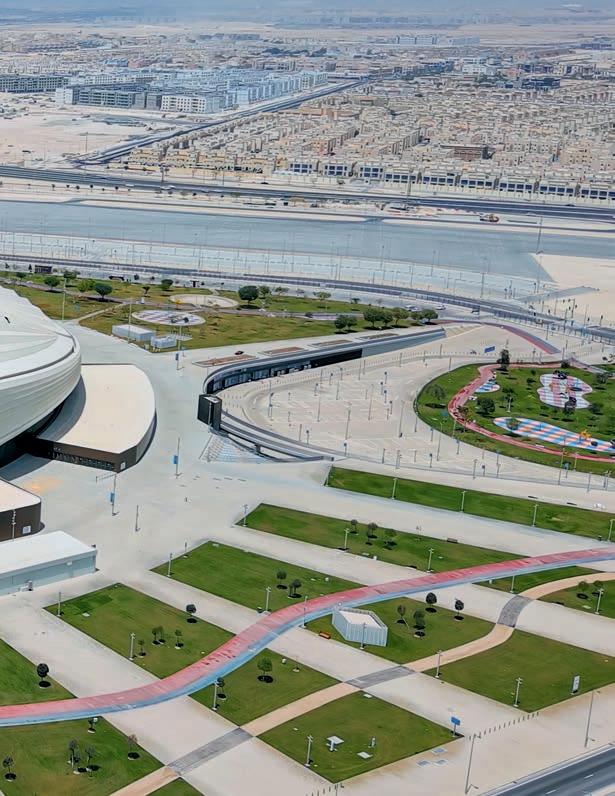
But, for a host country, is it financially worth it? The answer is "no". Most countries hosting a World Cup spend tens of billions on arrangements and developing infrastructure. However, much of that is often never recouped. People tend not to think retrospectively. An approach to past events with painful statistics is a red flag, especially for politicians. If the organization of such events was profitable, each country should be keen to win the chance to host as many events as possible and poorer countries would go out of their way to get their chance. Indeed, it is easier to organize this type of event when you already have stadiums, infrastructure, and facilities. Nonetheless, the gain is still debatable. And that is why in 2022, Great Britain and Ireland withdrew their applications for the World Cup 2030. In their statement, they announced that the resignation was made for economic reasons. The organization of the UEFA Euro offers a similar return on investment, even with the cost of hosting a European tournament being much lower and with benefits that can be realized much sooner.
However, even if it doesn’t make financial sense to host a football World Cup or Euro, some things are bigger than money. Hosting a World Cup is an exercise in projecting soft power that appeals to certain countries: Qatar, Russia, China, and the USA. It gives the world a glimpse into the country, shows the benefits of investment, and, most importantly, wins some political clout.
WBJ.PL 13
14 DECEMBER - JANUARY 2022/23 WARSAW BUSINESS JOURNAL SAVE THE DATE Warsaw 14.06.2023 There’s only one CEE A Gala. CEE A .com
LOKALE IMMOBILIA
MIXED-USE New Strabag project in Wola revealed
Plans for an office and hotel complex that will be built on the site of the Atrium International office complex have been revealed by Strabag Real Estate. Designed by architects from the Medusa Group, the project will include one 34-story skyscraper (131.5 meters) and a smaller 17-story hotel. The Upper One development will comprise 35,900 sq m of offices and approximately 11,000 sq m of hotel space. The project is set to be completed in 2026 and will replace Atrium, an iconic piece of 1990s real estate that was once considered a symbol of Warsaw’s shift to a free market.

WBJ.PL 15
>>>
REAL ESTATE INDUSTRY NEWS (covering) Hospitality Investment Market Logistics Mixed-use Office Residential Retail Find more daily at wbj.pl/real-estate
on sustainability
One of the largest office complexes in Warsaw’s Mokotów district, Marynarska Business Park, is undergoing extensive modernization with particular attention to sustainability, Syrena Real Estate announced.

The redevelopment will give a new appearance to the common areas of the office buildings and the outdoor area, where the 6,000 soiree meter concrete car park is being transformed into a publicly accessible green park. The planned completion date is the second quarter of 2023.
The main designer of the new look of Marynarska Business Park is Pracownia Architektoniczna MJZ. In addition, iGreen Architektura Krajobrazu designed the greenery, the interior design is by Łoskiewicz Studio, and the Reesco Group is responsible for the redevelopment.
ENERGY
Ghelamco completes the construction of three photovoltaic farms
Real estate investor and developer Ghelamco has completed the construction of its first three photovoltaic farms as a part of a program announced in May to achieve energy neutrality. Photovoltaic farms with a capacity of nearly 3 MW have been built in three locations in the Opole province.
Ghelamco’s key objective is to meet the energy demand for the Warsaw UNIT skyscraper. By using clean energy, CO2 emissions throughout the building’s lifecycle will be reduced by more than 50%, and utilities consumption will be lowered by as much as 70%, the company estimated.
HOSPITALITY
Historical Post Office in Kraków receives a new life as a hotel
The former Central Post Office in the center of Kraków , which has been vacant for years, will soon become a hotel. According to the new owner of the building, Zeitgeist Asset Management, a developer and asset management company, there will be plenty of attractions for residents and tourists.
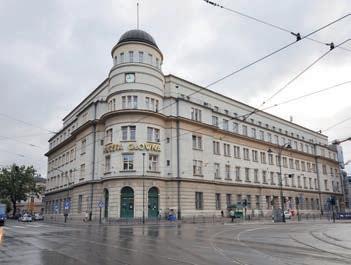
The building at the intersection of Wielopole and Westerplatte streets is one of the characteristic elements of the city. In the past, citizens often arranged meetings at the Post Office.
Part of the building was used as an office of telecommunication company Orange until 2019, when Zeitgeist Asset Management purchased the property to restore it to its former glory and make it available to the city residents.
“Becoming independent of conventional energy and turning to clean energy from renewable sources is not only ecological but also essential for the uninterrupted operation of the business,” says Jarosław Zagórski, Commercial and Business Development Director, Ghelamco Poland.
RESIDENTIAL Apartment prices on the primary market will rise by 2.2% in 2023 - Credit Agricole
Credit Agricole Bank analysts expect apartment prices on the primary market to increase by 2.2% yoy in 2023, 5.5% in 2024, and 8.4% in 2025. Expected price growth in 2023 has decreased compared to the previous forecast. The analysts expect the price per square meter to amount to PLN 11,325 in 2023 versus PLN 11,347 forecast in April.
According to the National Bank of Poland (NBP) data cited in the report, the average transaction price on the primary market for the seven major cities in Poland increased by a total of 10.9% between Q4 2021 and Q3 2022, including 4.5% in Q1 2022.
16 DECEMBER - JANUARY 2022/23 WARSAW BUSINESS JOURNAL LOKALE IMMOBILIA NEWS
TOP: PRESS MATERIAL, BOTTOM: WIKICOMMONS
“We believe that the time has come for the building of the Post Office in Wielopole to stop being just a historical memory and start creating a new chapter of its story. This space will become the public heart of the hotel, conference, and restaurant complex – a real meeting place,” says Peter Noack, CEO of Zeitgeist Asset Management.
OFFICE
Marynarska Business Park undergoes modernization with a focus
DOKI AND MONTOWNIA –BREATHING NEW LIFE INTO A HISTORICAL PART OF GDAŃSK
The multifunctional DOKI project, currently under development by Euro Styl, is reclaiming parts of Gdańsk’s historic shipyards for residential and commercial use.
APARTMENTS WITH MARVELOUS VIEWS AND SERVICED LOFTS WITH A UNIQUE ATMOSPHERE
Thanks to its significant scale and multifunctionality, the DOKI investment functions as a small district with various services, including residential in DOKI Living, hotel-gastronomic in MONTOWNIA, and office spaces in DOKI Office. The first two are being realized by Euro Styl, and the last by Torus. DOKI Living offers comfortable apartments designed in line with the latest architectonic trends. Its residents can enjoy stunning views of the water, the cranes of the historical port, or a panorama of the beautiful city of Gdańsk.
In addition to the residential options offered by DOKI Living, the project will include MONTOWNIA, a renovated building with unique serviced apartments (lofts), a food hall, and a conference center. The first building of DOKI Living will be completed in December 2022. MONTOWNIA will start operations in April 2023.

The Docklands in London or HafenCity in Hamburg are prime examples of reclaimed post-shipyard lands in Europe. In Gdańsk, their counterpart will be Młode Miasto, which encompasses the grounds of the former Gdańsk Shipyard. This area is where DOKI, recognized by the European Property Awards 2021-2022 as the best Mixed-Use Project in Poland, is located. The project is situated in the center of Gdańsk, neighboring the former shipyard wharves and The European Solidarity Center. In a 15-minute walk, one can reach the Main Railway Station, the Old Town, the Museum of World War II, and other tourist attractions.
An integral part of the DOKI project is the renovated historical building of MONTOWNIA, which achieved distinction in the Commercial Renovation/Redevelopment category of the European Property Awards 2021-2022. The building will accommodate 114 serviced lofts with floorage ranging from 37, 45, or 51 sq m–each with a kitchenette and dedicated living room. Access to MONTOWNIA’s apartments will be through the lobby, with a 24-hour reception desk. The building with be supervised by a professional management company which is part of the Dom Development Group, of which Euro Styl is also a member.

A NEW LIFE IN A HISTORIC PLACE
DOKI and MONTOWNIA are exciting proposals both for those who want to live in this unique place and those looking to invest their capital in real estate. The exceptional character of the entire DOKI complex and its revitalized surroundings are clear indicators that, as the attractiveness of this location grows in the coming years, it will become known as the other center of Gdańsk.
More information can be found at: eurostyl.com.pl
WBJ.PL 17 PARTNER HIGHLIGHTS
MONTOWNIA in the center of Gdańsk
DOKI Living in the center of Gdańsk
CEEQA –NEXT YEAR!
Following the successful delivery of the first CEEQA gala after three years, Richard Hallward , CEO and founder of CEEQA, reflects on the end of the pandemic and getting back to business.

WBJ: CEEQA delivered a strong comeback campaign in 2022 with some landmark wins and award nominations across the CEE and SEE markets, capped by a memorable gala, some say the best ever. How did it feel to run last year's gala after a three-year hiatus. Were you nervous? Richard Hallward: What struck me first, before we even started receiving and assessing award entries and data was the truly astonishing amount of boundary-breaking buildings delivered; how much city skylines across the region had visibly altered when the industry was meant to be at half-mast during the “pandemic years”, and
how many first-time award wins there were, reflecting a perceptible shift in some areas of market gravity and leadership.
These things were really interesting for me, and also important, as we began to build the 2022 gala – the “Happiness Gala” we styled it, the S of ESG for good reason. It made the hard road back that little bit easier. As did the massively understanding and supportive attitude of all our partners who stood firm on a “whenever you’re ready” basis, that was rewarding and motivating.
Secondly, was I nervous?
Of course I was, I think we all were. We were asking ourselves so many questions. Would the
18 DECEMBER - JANUARY 2022/23 WARSAW BUSINESS JOURNAL
SELFIE
BY RICHARD HALLWARD
LOKALE
NTERVIEW
IMMOBILIA EXCLUSIVE
crowd return? Would the sponsors stand firm? Would we have enough money to get it over the line? Were our own capabilities and service teams in reasonable health, given the damage wrought by the pandemic? Could we complete the awards program in the short window from the starting gun in March to the finale at the end of June, and whether a summer gala would work? Would the globally renowned artist we booked for the 2020 gala, Gloria Gaynor, stand by the commitment, or indeed be able to, given everything that had happened?
Believe me, we walked the wire in so many areas, but somehow we got it over the line with, in hindsight, some aplomb. Svetlana had joined the fray but a lot of it was new to her, plus a lot of people knew I wasn’t in the best of health, so we had our challenges. People were delighted to be back and to see the CEEQA they knew return, even if the June date and location were new. In the end, the CEEQA team and I were excited to return and that was a story in itself, getting back together after such a long and scary break. From the comments, it's fair to say that, for most, we once again delivered on our perennial promise of putting on the best gala ever.
It's unlike any other business sector I've known, the sense of community and belonging. But we’d missed the fun and the noise, so it was so good to be back.
It will be even better to be properly back in 2023 at full strength and in that beautiful new location on 14 June. So next year we'll be in better command of the situation and know the space better. For a production the size of CEEQA, that helps, for sure.
I had the pleasure to participate in the gala, and wow, did it feel like the industry was delighted to get back together. What have been the reflections of the attendees?
From the comments, it's fair to say that, for most, we once again delivered on our perennial promise of delivering the best gala ever...
Everyone had felt the pain of the pandemic, and were relieved at its ending. So everyone was ready for a proper party, which helped the mood. The almost universally positive response and feedback reflected this, whether it was just the joy and reassurance factor, the sense of sheer relief, or because it was a damned good comeback event and awards in the end. From the comments, it's fair to say that, for most, we once again delivered on our perennial promise of the best gala ever, come what may.
We're looking forward to fulfilling that promise again. So that's the challenge, right?
Better doesn't always mean more glamorous, more people, or more everything. It means better for its moment, the mood created, and the whole-experience metric. That's what we aim for with the gala. How can we blow them away and make it worth their while?
You have some exciting plans and concept changes for the 2023 CEEQA gala – can you tell us about them?
First and foremost, I'm pleased to reveal that we have a new lead partner and integrity supervisor. After a very long and mutually fruitful partnership with Deloitte, we've decided on a change to inject some fresh perspective and test ourselves again at the highest level on the whole machine's projection, content, and integrity drivers. I'm delighted to reveal that PwC will take up the reins of this role in the coming year.
"Something fresh" is, in fact, our watchword for 2023. We're
looking at every element and detail and asking ourselves if a fresh angle is needed. This year the focus was on delivering the CEEQA that people knew and respected – familiarity and reliability were vital. Next year is an excellent opportunity for a rethink in some areas, some of it quite radical. I love a good disruption. For full details, everyone will need to wait until the kick-off in January, but I can say it's designed to blow the mind :)
CEEQA has always called the "market changes coming" in advance of the market – what is the next "BIG" thing and topic for CEEQA 2023?
We're working on this, but the whole schedule is slightly later than usual with the June gala and the climax of the awards. So the "message concept" isn't fully formed yet. However, I can tell you is that the slogan we're working on adopts a broad focus on everything from the Ukraine war to the value of E, S, and G of ESG: "For a better world." So you can do the math from there.
What do we know about the next gala by now?
We're inches away from being able to announce the lead entertainment, but I doubt contracts will be signed by the time this magazine goes to press. Nevertheless, it's very exciting, trust me.
I've already touched on the dates and coordinates of the next gala. The dates and deadlines for the awards campaign will shift slightly later than usual, with an expected kickoff for entries on 24 January and close on 24 March. As I've mentioned above, 14 June at Wyscigi. There are a lot of fours in our dates this year, so I hope it proves lucky.
WBJ.PL 19
In recent years, the growth of e-commerce, accelerated by the Covid-19 pandemic and the relocation by many companies of operations and production closer to European markets has contributed to significant growth in the warehouse market. As a result, in terms of demand, rentals, or space under construction, 2021 was a record year.
By Michał Samborski, Head of Development at Panattoni
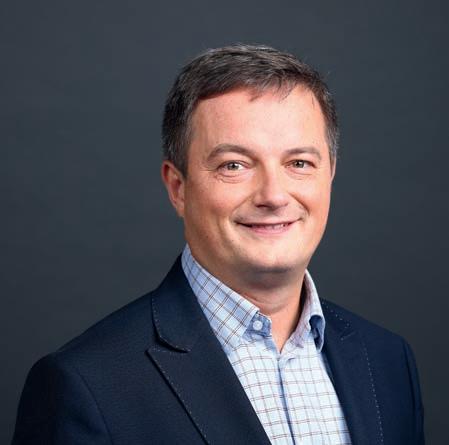
This year, the market situation began to be affected by the conflict in Ukraine, rampant inflation, and high-interest rates. In addition, a shortage of construction materials and their exorbitant prices are now translating into some reduction in the volume of space under construction, although the number of square meters under construction still remains at a relatively high level.
Low supply remains the driving force. At the beginning of 2022, the vacancy rate fell to 3.1%, nowadays, it is hovering around 4%. That, along with the increase in the price of construction materials, translates into higher rental rates. In some locations, they have increased by as much as 30%, but tenant interest in warehouse real estate remains high. Moreover, following rising energy prices and the trend associated with implementing ESG strategies, tenants and developers are more interested in green solutions in their buildings. Our response to this demand is the certification of buildings as a standard of implementation. We already have more than 6 million sq m of such space in Poland, with
more than half a million - in 15 locations - certified at the highest level of BREEAM Excellent, which became our new standard a year ago. We also plan to achieve Poland's first BREEAM certification at the Outstanding level, once again raising the bar for the entire industry.
Unless the geopolitical situation worsens, our warehouse market - after a slight slowdown - should return to more dynamic growth. We are still a "cheaper" market than the West, with extensive road infrastructure and good land availability. This can be seen, for example, in the significant increase in investment in the emerging markets of Szczecin and Lubuskie Voivodeship. We are building large e-commerce warehouses there for companies serving various European markets. Anyway, e-commerce will remain one of the main drivers of the market; facilities supporting processes for e-commerce already account for approximately 1/3 of the market in Poland. Admittedly, there is currently a slowdown in online sales growth rate as consumer demand is weakening, but the long-term prospects of this market remain very good.
20 DECEMBER - JANUARY 2022/23 WARSAW BUSINESS JOURNAL SUMMARY 2022
After an unexpectedly challenging 2022, the outlook for 2023 is brighter
There is currently a slowdown in the growth rate of online sales as consumer demand is weakening, but the long-term prospects remain very good”
Some normalization of the market one can already be seen. After a surprising increase in raw and construction materials prices due to the outbreak of the conflict in Ukraine, these prices are slowly stabilizing, although obviously at a higher level than a year earlier. Added to this will be the expected drop in energy prices. This will make it likely that stalled investments should resume in the coming quarters.
Panattoni, however, is still going strong despite the numerous challenges posed by the general market situation - we are signing more leases and building new industrial facilities. At the end of the third quarter, we had 1.5 million sq m in development. Since the beginning of the year, we have also purchased 500 hectares of land - more than in 2020.
So far, Panattoni has already completed 12 million sq m of industrial space in Poland, which is about 40% of the total domestic volume. Across Europe, we have delivered nearly 19 million sq m, and, at the end of the third quarter, we had 4.2 million sq m under construction.

WBJ.PL 21
A Partner in Challenging Times
Janusz Anioł, CEO of Raben Logistics Polska, discusses the challenges of 2022 and shares his thoughts on how the logistics industry will evolve in 2023.
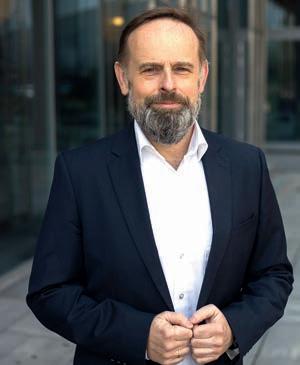
WBJ: How did you and your team at Raben Logistics meet the challenges of the pandemic and other crises in recent years?
Janusz Anioł: Recent years have allowed us to show what true partnership is all about. Our highest priorities have consistently been delivering the highest quality of service and stability in collaboration with our partners. During the pandemic period, under the slogan "We secure your business!," we did everything we could to ensure that our customers' goods were always properly stored and that all deliveries were carried out without disruption. Then, as we finally learned how to function in a pandemic, the war broke out in Ukraine, and new challenges arose.
Do you foresee further challenges in your industry from increasing fuel, gas, and electricity prices? Both now, and next year, we will all face high fuel, gas, and electricity prices. We estimate that electricity and gas costs together account for about 25-30% of the cost of storage. Analyzing recent changes in macroeconomic indicators, we are in discussions with customers to build awareness of what electricity and gas price increases mean for storage logistics and the maintenance of handling terminals.
Can innovation help to offset any of these rising costs?
The current situation is an impetus to optimize processes further and look for savings and solutions that will partially reduce rising costs. What is important is that we have been focusing on developing and improving IT solutions and automation for years. Improving customer experience with operating systems and online platforms like myRaben is essential. We are also explor-
ing online pricing for international shipments and Picture Confirming Delivery - a service that enables secure delivery confirmation based on pictures of the shipment instead of the recipient's signature. The work of our teams is facilitated by the use of RPA solutions. Overall, we are aware of the current challenges and as a professional logistics operator, we are taking steps to mitigate the situation's impact on our customers' business in the areas we can manage.
Your business continues to expand, but how does Raben deal with growing concerns about sustainability in the TSL sector?
All our new investments are equipped with state-ofthe-art technological solutions to support energy efficiency and low emissions. In addition, responding to the needs of our customers and observing the increasing volumes of export shipments, we are systematically launching new general cargo lines. Raben organizes international connections with an in-depth knowledge of market mechanisms, taking into account the phenomena and trends of the entire TSL sector. And when a new country appears on the Raben map, the local distribution network is almost immediately connected to the other countries of the Group through direct international lines. Last year, Greece joined the Raben family, and at the beginning of this year, Austria, the Group's fourteenth and fifteenth markets.
What are the advantages of your business model? What are the qualities that make your brand advantageous to consumers?
We live in interesting times, and the ability to adapt to the current economic and geopolitical instability is one of the biggest challenges facing companies, not only in the TSL industry. The needs of our customers, and consequently the world of logistics, are changing dynamically. Speed of response in crises, partnership, cooperation with customers, and the flexibility of all links of the logistics chain, have become the determinant of the effectiveness of most of the activities undertaken.
Our advantage is the multi-productivity, comprehensive offer, and competence of Raben's team of employees. I believe that a stable company whose employees possess the right kind of "drive" guarantees high-quality operations and will secure our customers' business. We just need to continue to grow and improve with them. Our customers know that we are not afraid of challenges, and in any situation, they can count on Raben - their partner in logistics.
22 DECEMBER - JANUARY 2022/23 WARSAW BUSINESS JOURNAL SUMMARY 2022
The ability to adapt in the current economic and geopolitical instability is one of the biggest challenges facing companies"
Demand for luxury is growing faster than the availability of new offers
The luxury and premium property market in Poland is flourishing. Neither the pandemic nor the outbreak of war in Ukraine nor the current economic slowdown, high inflation, and interest rate hikes have halted this. A clear confirmation that luxury protects capital like no other product in the residential market.
By Jeroen van der Toolen, Managing Director CEE, Ghelamco
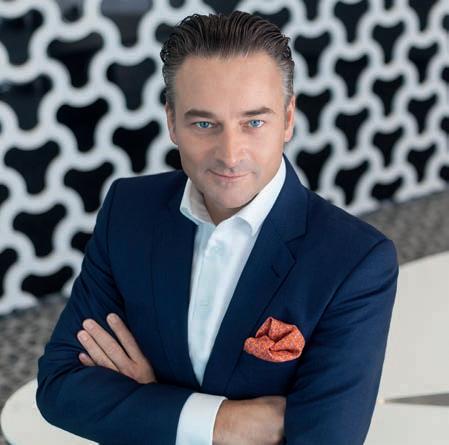
The characteristics of a luxury property include a unique location, a top-notch design, and a long list of amenities expected by buyers. However, the inaccessibility and uniqueness of the offering are the true differences between a premium and a luxury project.
Neither the pandemic nor the drastic interest rate hikes have weakened the demand for luxury. On the contrary, these crises have increased the search for unique offerings that improve the quality of life. They also offer a means to invest capital that has been shrinking due to inflation.
Poland's luxury and premium real estate segment is in good shape despite a significant downturn in the housing market. This is because it does not depend on mortgage financing, and its recipients mostly buy with cash. Moreover, a small market, a limited supply of apartments, and a well-defined client profile make them immune to economic turmoil, and their value is steadily rising – at a year-on-year rate of about 18%, according to a KPMG report. In our opinion, there is still room in the Polish market for perfectly designed properties, so we are working on preparing more projects for the most demanding clients.
An example of a truly luxurious development
can be seen in the apartments and commercial spaces at Foksal 13/15. Nineteenth-century residences on the Royal Route have always been one of Warsaw's best addresses. However, after a recent revitalization, they have gained a twolevel underground garage, elevators, a SPA area, an observation deck, and even guest rooms. A revitalization done in this way is truly unique on a countrywide scale, as it combines an excellent location, architecture, and service. That is also the reason why 95% of the apartments in the entire portfolio have already been sold, and only the last three penthouses remain.
This type of product is unique, hard to find, and rarely returns to the secondary market, greatly increasing its value. Because luxury apartments are considered a long-term investment and part of a real estate collection, their owners are reluctant to part with them. With inflation forecasted to remain high for another year and interest rates maintained and perhaps even increased, it is expected that prices for luxury and premium properties in Poland will continue to rise. And this, combined with low supply and a noticeable increase in demand, makes them an attractive investment product.
Poland's luxury and premium real estate segment is in good shape despite a significant downturn in the housing market”
WBJ.PL 23 SUMMARY 2022
Challenges will continue in 2023 but opportunities persist
Despite the challenges that arose in the second half of 2022, the strong fundamentals of the Polish real estate market still offer opportunities, according to
Erik Drukker, CEO of BNP Paribas Real Estate Poland.
By Erik Drukker, CEO, BNP Paribas Real Estate Poland
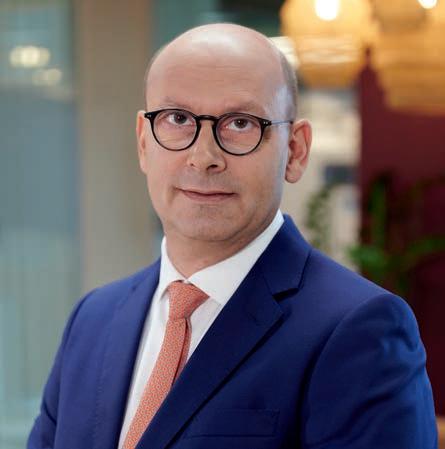
Next Year will be challenging for all players in the market as the real estate market is generally one of the first sectors to feel the impact of these challenging periods. We are already facing an energy crisis that erupted after the start of the war in Ukraine, and it has affected our market greatly. Furthermore, we are still facing growing: inflation, construction costs, rents, and service charges. Due to the likely more cautious and restrictive approach to financing, we predict that transaction volumes will weaken, and fewer products in various asset classes will be delivered to the market.
However, we must remember that all challenging situations create tremendous opportunities, boost creativity, and open our minds to new ideas and solutions. We have lived through COVID, which sped up the implementation of many new innovative tools that will enable us to optimize processes and help our work be even more effective. MIPIM 2023 will likely determine the investment mood,
Poland is, and has been for many years already, an excellent country to invest in”
and I am convinced the market will pick up the pace in H2 2023. Poland is, and has been for many years already, an excellent country to invest in. It offers multiple advantages, such as its location in Central Europe, good availability of products in each asset class, a vast pool of skilled labor, and ongoing investments in transportation, infrastructure, telecommunications, and so on. Therefore, plenty of opportunities can be found during the market downturn. This is why I am optimistic and know we will continue on our path of growth as a company and an industry.
I am very proud to say that despite different economic and political obstacles, 2022 was, just as 2021, very good for BNP Paribas Real Estate Poland. As 2021 already was the record year for us in terms of both turnover and profit we are not slowing down and aiming high for this year also. This, of course, is only possible with a very dedicated team of wonderful people who have worked
24 DECEMBER - JANUARY 2022/23 WARSAW BUSINESS JOURNAL SUMMARY 2022
hard to achieve all the goals and objectives we have set for ourselves.
In 2022, we grew by 10% and extended our Project and Development practice with a new department dedicated to ESG, with the support of Anna Rusek and Sławomir Adamczyk, led by Piotr Rusinek. We have reached 1.2 million sqm under property management and have leased more than 200,000 sqm of industrial and logistics space. One of the most dominant retailers on the market has chosen us to renegotiate over 50 lease agreements for their locations in Poland. We also made some personal changes within the company: Arkadiusz Bielecki took over Valuations, Małgorzata Fibakiewicz now heads up the Office Agency, and Justyna Magrzyk – Flemming took over additional responsibilities as Head of Business Services. These are just a few examples, as it has been a busy year for us, but we have even more ambitious plans for 2023.

WBJ.PL 25
Office buildings have come back to life
Companies are increasingly returning to work in the office and, despite the recent economic slowdown, some opportunities in the development sector remain, says Jarosław Zagórski, Commercial and Business Development Director at Ghelamco Poland.
By Jarosław Zagórski, Commercial and Business Development Director at Ghelamco Poland
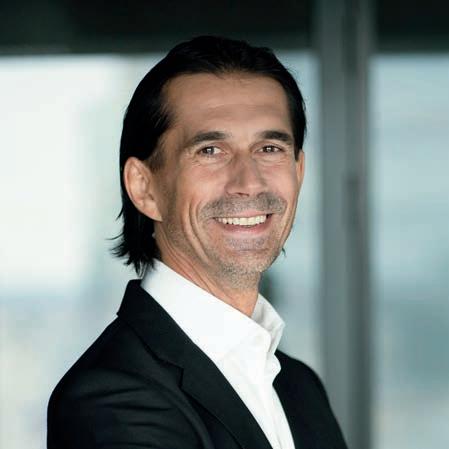
The year was marked by a return to the office. Following the pandemic, management boards realized that a full-time home office is insufficient to keep people motivated and that a company’s culture suffers without face-to-face interaction. Thus, 2022 brought a clear increase in activity in both offices and business.
Numbers do not lie. The first half of 2022 was very good. Regional markets rose to their highest-ever level with over 340,000 sq m leased, while in Warsaw, 480,000 sq m was leased, double the figure of the previous year and higher than the record years of 2018 and 2019. This increase is also confirmed by the leases signed by Ghelamco –global brands, including Google, MetLife, NTT, and Shopee, have joined our tenants. Also, the office investment market had an excellent first half of the year. As can be seen, for example, by the landmark transaction of Google taking over The Warsaw HUB complex from Ghelamco for €584 million, setting a new record for the CEE office market.
The outcome of the second half of 2022 no longer seems so optimistic. High inflation and a slowing economy are affecting not only the residential sector but also the office market. In uncertain times like these, companies try to limit their expenses. They adopt a general “wait and see” approach. Of course, declines in the number of projects during the pandemic saved the office
market from too much oversupply. As a result, the vacancy rate in Warsaw is stable, hovering around 12%. At the same time, there is a lack of highquality office space in the locations available right now in the city center. The situation is different in the regions where the vacancy rate has increased significantly in some cities.
Ghelamco is an example of a player that has not slowed down and has carried on developing more projects. Currently, the company is building almost 115,000 sq m of high-quality office space in Warsaw, Kraków, and Katowice. Our office tower, The Bridge, is the largest building under construction in Warsaw. In October, construction began on the Vibe project in the Wola district. In this way, Ghelamco is looking to meet the need for office space in the capital over the supply gap predicted for 2023/2024.
The year’s most dominant trend in real estate and other sectors was ESG, which is increasingly influencing company strategies and activities. For example, the decision of which office to lease will become more and more determined by needing to choose the most ecological and energy-efficient building. At Ghelamco we place great importance on ESG strategy. The company wants to become energy neutral by 2025 through our project to build solar farms. By 2023, Warsaw UNIT is to be the first office tower in Poland to be 100% powered by clean energy.
26 DECEMBER - JANUARY 2022/23 WARSAW BUSINESS JOURNAL SUMMARY 2022
The decision of which office to lease will become increasingly determined by needing to choose the most ecological and energy-efficient building”
Predicting trends in Unified Communication for 2023

New work models and Artificial Intelligence have not only changed where we work, they have significantly changed how we work. As an enabler of this change, Unified Communication has improved productivity by driving more effective collaboration and communication.
SAME WORK, SHORTER WORKDAYS
In Poland, nearly three-quarters of Poles would like to work four days a week, but they would still like be paid as if they were working five, according to a survey by ManpowerGroup. Therefore, processes must be streamlined so tasks are completed in less time. As part of making work easier and faster, many are opting for equipment that enables automation. Therefore, solutions that offer instant connection to a specific audio or video conferencing application are increasingly popular. The ability to start a meeting without complex intervention or extra equipment is now standard. The search for simplification in daily work also means the unification of systems and devices supported by software or plug-ins.
The sudden acceleration of digitization, and the introduction of new work models - hybrid and remote - have completely reshaped business. The development of Artificial Intelligence (AI) has played a role in these changes, along with Unified Communication (UC). Face detection, voice detection, speechto-text transcription, or automatic translations save employee time and help them focus on getting work done. AI-supported features are not only beneficial from an accessibility standpoint, but also provide a range of other benefits.
Trends in the UC category reflect current business trends: greater flexibility, and automation. Streamlining daily work by adapting the environment to the needs of the workforce not only makes it easier to work in any location, it also supports common business goals.
SUPPRESSING EXTERNAL NOISE
Another surprising trend is disengaging from outside noises to enable focus on the task at hand. Whether the work will be done from the home, the office, or any location - background sounds must be suppressed to maintain continuity and high task performance. The Active Noise Cancellation headphones and other devices function is essential in solutions designed for hybrid work, and is likely to become standard in devices for business.
REMOTE WORKING ON THE GO AND BEYOND
Remote work has conquered the global business sector at a dizzying pace – up to 89% of organizations have now implemented hybrid work, according to "Hybrid and Beyond. Define. Design. Deliver. Challenges in Implementing a Hybrid Work Model." This has provided a greater level of flexibility and improved employees' quality of life– as confirmed by 73% of respondents in the "Impact of Remote and Hybrid Work on Employee Well-Being" survey. Over time, this revolutionary approach has completely reshaped the labor market. Currently, the biggest trend is remote work - from any location. Depending on the time zone, this work model can pose some complex problems for remote workers. A good solution to this is to introduce a task-based work mode, instead of "sitting" the mandatory (and unproductive) eight hours in front of a computer. "
WBJ.PL 27 TRENDS 2023
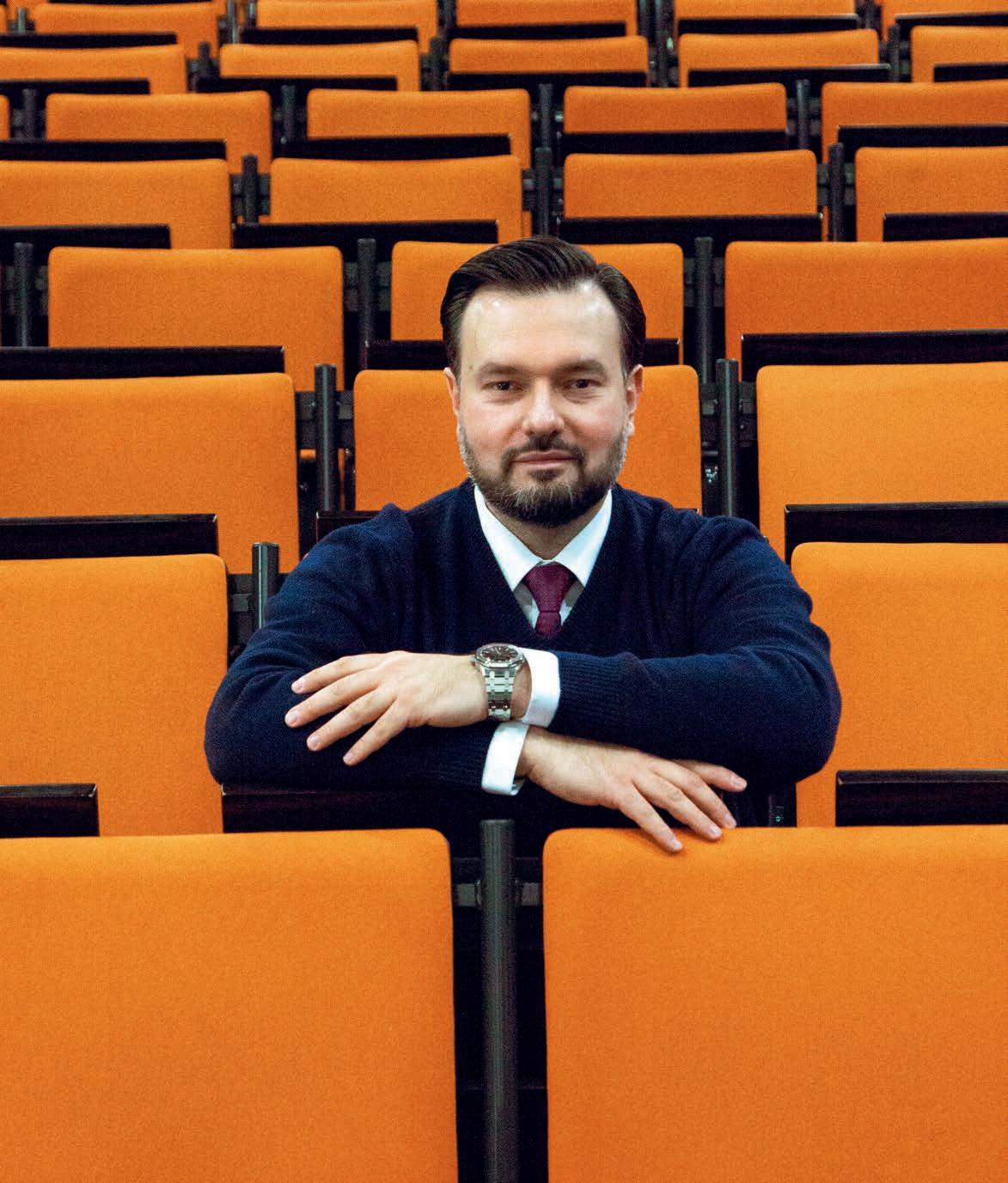
28 DECEMBER - JANUARY 2022/23 WARSAW BUSINESS JOURNAL INTERVIEW
Accessing an education without obstacles
Known for his expertise in building partnerships with top-tier Polish universities, Dr. Mehmet
İplikçioğlu discusses his career and his predictions for higher education in Poland in 2023
Göktürk
WBJ: Dr. İplikçioğlu, we do not often meet with active investors in international education. Why did you choose this sector? How did this investment adventure begin?
Dr. Mehmet Göktürk İplikçioğlu: Twenty years ago, I continually encountered problems as an international student. In a foreign country, it was difficult to take care of your official duties in a language that you had just begun to learn; for instance, to apply to a study program at the university, to apply for a visa, and even to find a flat. Therefore, I started my business with the question: "why not create a good company that will help people and be successful?" Consequently, I founded a business based on helping others avoid the problems I experienced. You can always be successful if you find the right idea, and I think I am one of the first investors in this sector. Today, I am pleased to be able to help thousands of students study abroad without any issues.
Why did you start this business in Poland when there are well-known destinations in the international education sector, such as the USA, UK, or Germany?
When starting this business, I was driven by humanitarian motives, as I mentioned above. Education is one of the most important human rights, and I am motivated to enable young people to access education without obstacles. I chose Poland as the location to start my business because not everyone can access educational opportu-
nities in countries such as the USA, the UK, and Germany due to the high costs of living and difficult visa processes. Poland offers many opportunities for students around the world to receive a quality education and I believe it is a country friendly to international students. Of course, we also send students to the USA, the UK, and Germany, but Poland's place in this sector will always be special to me.
There has been a significant increase in the number of international students coming to Poland in recent years. What makes Poland attractive to these students?
After Poland became a member of the European Union, it made serious investments in its universities and educational institutions. The increase in the number of internationally recognized universities in the last 20 years is due to the outstanding scientists they have trained. Twenty-seven Polish universities are among the top 1000 universities in the world in lists compiled by the world's respected assessment institutions, i.e. Times Higher Education, QS, CWTS Leiden, and URAP. Also, almost every Polish university has career clubs. These career clubs have agreements with large companies and can help students find good internships and job opportunities. Furthermore, Poland offers work permits for education, and every international student can stay in the country and continue their professional careers if they find a job within 12 months after graduation. It is also an attractive country for start-ups, and if students wish, they can develop their ideas further by setting up their own companies.
So, is everything so good for international students? Do they face any problems here?
Of course it's not all rosy, and not all international students have the same opportunities. A country's foreign policy and relations with other countries will affect the visa process. We also cannot say that the visa evaluation processes of students from all countries are equal, but compared with many countries, Poland is a country that issues student visas under favorable conditions.
If you ask what we can improve, the visa processes for students could be facilitated, which would help them settle more quickly.
What do you think 2023 will bring to the Polish international higher education sector and international universities?
In 2023, Poland will be an even more attractive country for international students thanks to global economic and geopolitical developments. Also, I believe that Poland's goal to reach 100,000 international students, which has been set for several years, will finally be reached in 2023.
Considering Poland's immense progress in education, it will find its place among other desirable European destinations in 2023. Poland has hosted international students from many places, including the Scandinavian countries and Germany in the 20212022 academic years, and it seems that it will continue to welcome students from less economically developed countries, too.
WBJ.PL 29
PHOTOGRAPH BY KEVIN DEMARIA
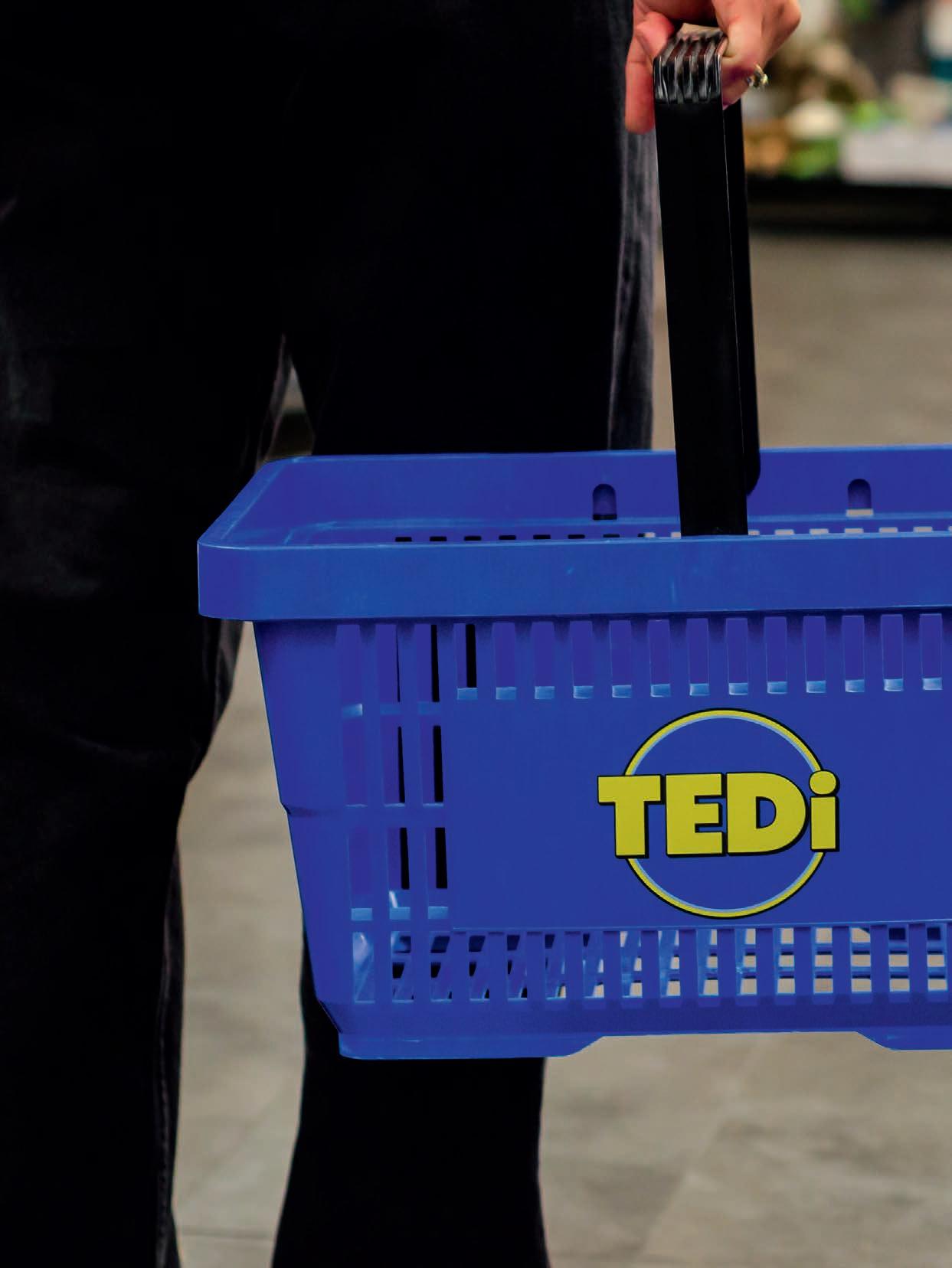
DISCOUNT STORES BOOM AS INFLATION HITS POCKETS
The discount store sector in Poland has seen an unprecedented expansion despite increases in the prices of consumer goods and services and decreasing consumer spending.
 BY ANNA RZHEVKINA
BY ANNA RZHEVKINA
WBJ.PL 31
SKYROCKETING INFLATION has prompted Polish consumers to become more careful with spending. Prices of consumer goods and services jumped by 17.9% annually in October, the highest rate in almost 26 years, according to GUS, Poland’s statistics office. Prolonged price growth has been eating up households' savings, and, as a consequence, people are planning their budgets more rigorously, focusing on essential purchases and looking for cheaper alternatives.
As consumers reconsider their buying habits to cope with price increases, discount stores have been gaining in popularity. Private labels - products that are produced by a third party but which a retailer sells under its own brand name - enjoy a clearly positive trend in Europe, according to NielsenIQ. Globally the market share for private labels is 19.4 %, whereas, in Poland, it has reached 21%, well above the 14.7% market share in Eastern Europe as a whole, suggesting that Poles are pretty price-conscious.
Discount stores have been actively expanding in Poland in the last five years. The German company TEDi, which positions itself as a family-friendly discounter, entered the market in 2018. A year earlier, the Dutch concern, Action opened its first store in Poland. The chain's core advantages are quality, simplicity, surprise, and low prices. Nowadays, the brand has more than 200 stores and about 3,000 employees in the Polish market.
Action says it restricts price increases by buying in large volumes from producers. “Our prices also increase, but this way we do not have to pass on the entire increase in costs to our customers,” Sławomir Nitek, General Manager at Action Poland told Warsaw Business Journal.
UNINTERRUPTED GROWTH
In total, there are more than 2,150 discount stores in Poland, and according to Bankier.pl, their numbers keep growing. Pepco, the largest chain among the non-food discounters, controls about half of the market with 1,200 stores. The British discounter Dealz, which already has 170 stores in Poland, is also managed by Pepco Group. The second biggest player, the German discount fashion and home goods chain Kik, has more than 400 stores in Poland.
Another German discount chain, Woolworth, announced its plans in October to enter the Polish market in 2023 with the aim of having up to 25 stores there in the first year of operation, reach-
ing 400 stores in the long term. "Our analysis shows that the retail trade in Poland has enormous potential. We are sure that the Woolworth brand will have a similar level of success in Poland as we have achieved in Germany," the CEO of Woolworth Polska Maciej Ćwikła told Retailnet.pl.
The opening of the first store in the Atut Kraków Shopping Center is scheduled for the beginning of May 2023, and its sales area will amount to around 1,000 square meters, Woolworth spokesperson Roland Rissel told the Warsaw Business Journal. "The success of discount chains shows us that people are open to offers of this kind. We are convinced that we can be an asset in the retail sector," he said.
Rissel stressed that rising prices pose challenges for retailers throughout the EU, and discounters are more critical than ever for price-sensitive customers at this time. "In our experience, rising prices can be observed in all product ranges. Our task as a discount department store is to pass as few of these on to our customers as possible," he said. Rissel explained that buying directly from producers and having lean supply chains enable Woolworth to offer its products "at particularly favorable prices without compromising on quality."
SAVING STRATEGIES
Polish consumers adopted a range of strategies to cut their spending in 2022. Compared to last year's third quarter, the group of people cutting expenses grew by nearly 20 percentage points, a study by UCE Research and Blix Group showed. Nowadays, already 60% of Poles are trying to reduce their expenses. Apart from rising prices, the reasons for caution include the fear that the economic situation will worsen further and the lack of savings. Almost half of Poles are saving on clothes, and 44.5% of consumers limit sweets and snacks. Slightly fewer people save on alcoholic beverages, household appliances, and cosmetics.
On top of that, Poles have already started saving on basic groceries, Rzeczpospolita reported, citing a study by market intelligence firm GfK. About 400,000 Poles stopped buying fresh fish or loose-leaf tea, and a slightly smaller group started buying cheaper margarine instead of butter. After the first nine months of this year, the value of food goods purchased by Polish households increased by 10.3% due to rising prices, but the volume of purchases shrank by 2%.
Consumers are seeking options like product promotions or cheaper goods to save costs. Not surprisingly, discount stores with a wide range of goods at affordable prices are flourishing. Pepco Group in October reported a full-year (ended 30 September 2022) revenue growth of 17.4% on a constant currency basis to €4,824 million.
32 DECEMBER - JANUARY 2022/23 WARSAW BUSINESS JOURNAL
FEATURE
There are more than 2,150 discount stores in Poland, and their numbers keep growing
"These are very challenging times for families across Europe, and we remain committed to helping customers on a budget by offering great range, value, and convenience – and we are confident this will enable us to expand our customer base going forward," Pepco Group CEO Trevor Masters said in a statement.
Pepco plans to increase the number of new store openings in the Polish market to 550 next year and is eyeing expansion to Greece and Portugal. In Poland, the company plans to modernize 1,800 stores by the end of 2023, and in the next two years, all Pepco stores across Europe will have a new look. The changes include new branding, product lines, and store layout.
Dealz aims to double its number of stores to 340 by the end of next year and plans to open a distribution center in the emerging logistics park Hillwood Łowicz Południe in Łódź Voivodeship. The company has leased 47,700 square meters in the park to use as a warehouse, office, and social space.
Action plans to develop its supply chain in Poland to ensure that all stores regularly receive the right products. The company is also considering opening another logistics center in Poland, Nitek told Warsaw Business Journal.
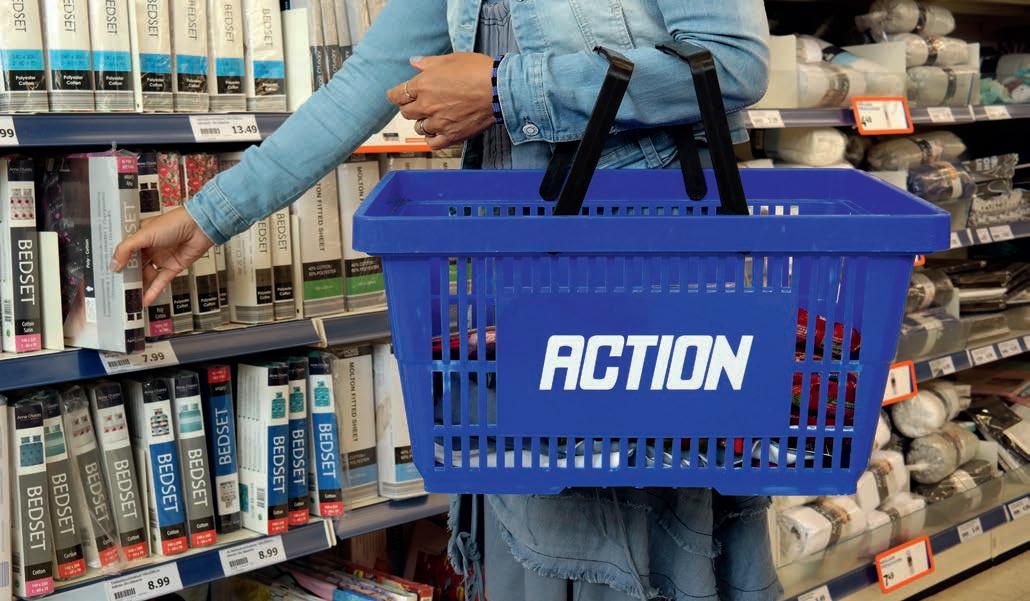
MIXED TRENDS IN THE GROCERY SECTOR
The situation, however, is different for discount grocery stores that struggle to maintain margins amid growing producer prices and higher electricity costs. For example, Netto Polska has shortened the opening hours of several stores since November, saying that the solution will allow offering the "lowest possible product prices." A
month earlier, Kaufland also shortened the opening hours of many stores, assuring that consumers visit stores less often in the evening.
On the bright side, major chains are still expanding their workforce. For example, Lidl Polska announced plans to create about 1,400 new jobs and allocate a total of PLN 230 million on salary increases in 2023. Kaufland Polska plans to hire new employees and spend PLN 120 million on salary increases next year. On top of that, the company gave its employees prepaid cards for up to PLN 1,000 as Christmas gifts.
The discount supermarket chain Aldi also continues expansion in Poland, and aims to have 500-600 stores in Poland within five years. At the moment, Aldi has 233 stores in Polish market and employs nearly 4,000 people.
All in all, stores in Poland face the challenge of responding to changes in consumer behavior as people are becoming smarter with their spending. Promotional offers, more affordable product alternatives, and a wide assortment of goods are some strategies discount stores use to attract new customers and retain existing ones. Although these work, growing competition prompts chains to constantly develop creative solutions to deal with customers who will think twice before buying.
WBJ.PL 33
SOURCE: EUROSTAT
Nowadays, already 60% of Poles are trying to reduce their expenses
Freelancers by choice

34 DECEMBER - JANUARY 2022/23 WARSAW BUSINESS JOURNAL
The number of freelancers in Poland has now reached 300,000, so WBJ sets out to discover: Who is freelancing in Poland, and why do they prefer self-employment to a stable job?
 BY ANNA RZHEVKINA
BY ANNA RZHEVKINA
WBJ.PL 35
HE POPULARITY OF FREELANCING has been growing since the pandemic as people increasingly discovered the advantages of flexibility. The possibility to work from any location at convenient hours and collaborate with businesses worldwide was attractive to many. It has also transformed the way many professionals approach their jobs.
The number of freelancers in Poland jumped by 11.4% compared to a year ago and has reached about 300,000, according to recent research by Useme, a platform for freelancers and employers. In Poland, freelance is equally popular among women (51.4%) and men (48.6%), although more men freelance worldwide.

Almost half of freelancers are between 26 and 35 years old, while the second largest group is people aged 36-45. Nowadays, freelancers are usually experienced professionals ready to sell their services in the open market.


One of the main advantages of registering as selfemployed is the possibility to collaborate with clients from various countries. Poland's weakening national currency, which hit a historically low level (PLN 5/USD 1) in October, has prompted freelancers to seek contracts in euros and dollars.
Poland's largest group of freelancers (26.9%) specializes in copywriting and social media services. Graphics and 3D design professionals are in second place (17.6%), followed by web developers (10.2%). Useme CEO Przemek Głośny told the Warsaw Business Journal that the popularity of freelancing is fueled by a shortage of qualified specialists in the market. "It is not easy to get a high-class specialist on a permanent basis; it is easier to "rent" them for a specific task. The approaching economic crisis is now enhancing this effect. Many companies will not be able to afford to hire specialists on a permanent basis," he said.
The total number of freelancers is continually growing by about 10% annually, Głośny estimated. Almost half of them are full-time freelancers, while the remaining half rely on freelancing as an extra source of income. Głośny notes that Poland is still behind other EU members in developing a freelance market, but expects the country to catch up with the rest of Europe in the coming years.
In Poland, more than 90% of freelancers choose to work from home. The vast majority have flexible work hours, and less than one in ten freelancers stick to fixed schedules. However, when it comes to vacations, their approaches are mixed. On the one hand, slightly more than one-fourth of freelancers take only short weekend trips. On the other hand, almost 24% have had vacations that last more than two weeks.
TURNING ENTHUSIASM FOR TRAVEL INTO A JOB
Aleksandra Verchenko, a PR manager from Belarus moved to Poland about four years ago with her husband, an IT specialist. She left her senior position in an agency to start her journey as a freelancer and enjoy the freedom of working from any location. The family started actively traveling throughout Poland, discovering places not well-known by regular tourists. "In the summer, we spent a week at Czorsztyńskie Lake near Zakopane," Aleksandra said. "We worked, but at the same time, we enjoyed nature, the view from the window, and the beach nearby."
According to Aleksandra, internal motivation is the key to success in freelancing. "If a person has a sense of responsibility, self-employment should not be a problem," she said. With time, Aleksandra and her husband turned their passion for traveling and synergies in skills into a business project. In July 2021, they launched VacationPoland, an online audio guide that allows travelers to discover Polish cities at their own pace without booking an organized tour.
Although Poland has a lot to offer for travelers, the information in English is still limited, Aleksandra notes. This lack inspired her to create a tech project that will help to attract visitors from different countries. Local guides design the tours, and they are available in several languages. In addition, users get access to maps with recommended restaurants and cafes to relax in after a long walk. The tours do not expire, and travelers can discover a city in more than one visit. The online audio guide is now available in Kraków, Wroclaw, and Poznan, and the tour of Gdańsk tour is scheduled to launch in December when many visitors come for the Christmas markets. Aleksandra also plans to design tours in Warsaw, Torun, Lodz, and Lublin and is considering international expansion.
36 DECEMBER - JANUARY 2022/23 WARSAW BUSINESS JOURNAL
FEATURE
Like many freelancers, Aleksandra is passionate about her job, and she says the challenge for her is to find a healthy balance. "There were times when I opened my eyes in the morning and started answering messages immediately. Now I have changed my approach," she said. She notes that it is essential to build healthy borders with clients: to be friendly and available on the one hand but to be able to say no, on the other. Her further advice to freelancers is to become familiar with the laws of the country where they perform their services, especially the tax system.
WIN-WIN EMPLOYMENT
Despite the rise of freelancing's popularity, only 8% of working people in Poland are ready to convert into fulltime freelancers, Business Director of recruitment agency Antal Poland Fabian Pietras told the Warsaw Business Journal during the European Forum for New Ideas. Most are IT specialists, media professionals, copywriters, lawyers, and HR specialists. Pietras specified that statistics do not include blue-collar workers and temporary employees. Instead, they focus on those who become freelancers by choice.
Professionals often decide to work on B2B contracts due to a higher income than a regular employment contract, the flexibility to choose projects, and the variety of tasks. Pietras says that both professionals and businesses drive the growth of freelancing. Companies can find the right specialists much faster than through a standard recruitment process, and they also have the flexibility to hire for a specific project rather than permanently. He stresses that about 65% of companies nowadays use outsourcing to focus internal resources for the core business.
As a result, businesses are seeking to establish regular collaboration with contractors. "If a company wants to stick with a contractor, it's important to bond with them and make them feel part of the team," Pietras said. He said one possible solution would be offering freelancers benefits, such as health insurance or wellness programs.
The growth of freelancing's popularity is another example of radical changes in the labor market, showing how relationships between employers and professionals have evolved in recent years. On the one hand, specialists are looking for more freedom, flexibility, and development opportunities. On the other, businesses are more careful about hiring as inflation and fears of the economic slowdown create uncertainties. However, a stable increase in freelancers shows that the change is here to stay, and the 9-to-5 workday is becoming outdated as more professionals want to work under their own conditions.
FREELANCING AS A LIFESTYLE

The freelancing boom has prompted businesses to create services for people who choose remote work as a lifestyle. Start-ups worldwide offer digital nomads the opportunity to join co-living communities to move between the cities of their choice freely. Real estate platform Hivegeist, for example, provides an annual membership that includes flexible housing options in popular cities around Europe, international networking opportunities, and cultural experiences. The basic membership starts from 40 euros per day for a monthly stay.
Another platform Coliving operates under the slogan "Living together is better." It offers shared housing for people with similar values and lifestyles, allowing them to exchange experiences and ideas. Unlike Hivegeist, which provides a membership subscription, Coliving charges for accommodation in a specific city for a particular period. Both platforms promote the feeling of community as the critical co-living advantage. On top of that, housing options include shared and private workspaces and cleaning services.

WBJ.PL 37
W HAT SHOULD AN ENTREPRENEUR KNOW ABOUT CHANGES TO THE POLISH COMMERCIAL COMPANIES CODE 2022?
Changes on the operation of Polish companies, which came into force on 13 October 2022, are certainly worth familiarizing yourself with.
BY KAROLINA KLIMEK-KAŹMIERCZYK AND ROBERT MIKULSKI
NEW CHANGES FOR THE MANAGEMENT OF SUBSIDIARIES
One of the key changes is the introduction of a new statutory term – "group of companies." This refers to a parent company and a subsidiary company or companies, which are capital companies guided by a united strategy to pursue a common interest. This justifies the parent company's exercise of unified management over any subsidiaries.
A group of companies entails a peculiar relationship of dominance and dependence between its members, as these companies are guided by common economic goals that enable the parent company to provide efficient guidance and management. The amendment allows the parent company and subsidiaries to be guided
by a common economic strategy to advance the group’s interests. The parent company will now be able to exercise unified management over its subsidiaries by, among other things, issuing binding instructions for the conduct of the subsidiary's affairs. The subsidiary will also be entitled to refuse to carry out orders in cases specified in the law.
The basic legal instrument through which the parent company manages a group of companies is by a binding instruction to the subsidiary. This instruction may concern the management of the company's affairs, and the reason for its issuance should be directly related to the group of companies' interests.
A binding order may be issued by the parent company’s board of directors, or
its proxy and attorneys, within the scope of their authority. The subsidiary must inform the parent company of their acceptance or refusal of this order via a resolution from the subsidiary’s board of directors The subsidiary is legally required to refuse a parent company's order in several situations, which, generally speaking, may harm the subsidiary's interests. Therefore, the resolution to carry out an order should also include the reasons for refusal.
In addition, the amendment stipulates that a member of the subsidiary's board of directors will not be liable for damage caused by (i) carrying out the parent company's instruction in a manner consistent with the Companies Act, or (ii) acting in the interest of a group of companies.
Thus, the parent company will be liable on a fault basis for any damage caused by its binding instruction if it is not remedied to the subsidiary within the specified period. However, the exclusion of liability will not apply in every case. For example, members of the subsidiary's bodies will be held liable for following a so-called informal order (one that does not meet the conditions set forth in the Polish Commercial Companies Code) or if the subsidiary carries out a binding order when, under regulations, there were grounds for refusing to carry it out.It should be noted that the regulations introduced do not protect against criminal or administrative liability for members of bodies who acted by claiming to carry out a binding order.
38 DECEMBER - JANUARY 2022/23 WARSAW BUSINESS JOURNAL FEATURE GROUP OF COMPANIES

WBJ.PL 39 SHUTTTERSTOCK >>>

40 DECEMBER - JANUARY 2022/23 WARSAW BUSINESS JOURNAL FEATURE GROUP OF COMPANIES
CHANGES IN POWERS AND DUTIES OF THE BOARD OF DIRECTORS
The amendment also sets out how the term of a board of directors members is calculated. If a board member is appointed for a term of more than one year, their term of office expires on the date of the shareholders' meeting approving the financial statements for the last full fiscal year of the board member's service unless the company's articles of association provide otherwise.
A former member of the Board of Directors has the right and obligation to provide explanations during the preparation of the Board of Directors' report on activities and financial statements covering the period of his/her performance as a
BY CLAIMING TO CARRY OUT A BINDING ORDER
member of the board, and to participate in the shareholders' meeting approving these reports, unless a resolution of the shareholders' meeting provides otherwise.
The amendment also stipulates that board resolutions shall be documented. The protocol should include: the agenda, the names of board members present, and the number of votes cast for each resolution. It should also indicate any dissenting opinion submitted by a board member, and any reasons for it. The protocol shall be signed at least by the member of the board of directors presiding over the meeting or managing the vote, unless the articles of association or the bylaws of the board of directors provide otherwise.
The amendment also clarifies the hitherto unarticulated duty of loyalty of a board member. In addition, a board member may not disclose company secrets even after the expiration of their mandate.
NEW DUTIES AND POW-
According to the amendment, a member of a board of directors, supervisory board, audit committee, and/or liquidator does not violate the duty of diligence arising from the professional nature of their activities if, acting in loyalty to the company, they act within the limits of reasonable economic risk, including on the basis of information, analysis, and opinions that should be taken into account after making a careful assessment.
The amendment also goes into quite some detail on the scope of the board's new duties and powers, and grants additional powers to the supervisory board and the audit committee in a limited liability company (LLC) and the board of directors in a simple joint-stock company (JSC), which are intended to provide these bodies with more effective oversight. The legislation establishes and clarifies the powers of a company's supervisory board in the context of auditing the company's books and documents. It imposes an obligation on the company's board of directors to promptly provide documents requested by the supervisory board. In addition, a new obligation is imposed on the auditor to attend a board meeting to evaluate the financial statements.
You can find Karolina Klimek-Kaźmierczyk's and Robert Mikulski's BIO on page 4
WBJ.PL 41
ERS FOR SUPERVISORY BOARDS
“IT SHOULD ALSO BE REMEMBERED THAT THE REGULATIONS INTRODUCED DO NOT PROTECT AGAINST CRIMINAL OR ADMINISTRATIVE LIABILITY FOR MEMBERS OF BODIES WHO ACTED
INTERNATIONAL TRADE AND SUSTAINABILITY –WHAT ARE WE FIGHTING FOR?

FEATURE E-MOBILITY
"The earth is a fine place and worth fighting for," wrote Ernest Hemingway in 1940, and these words remain timely. Even if we live in quite uncertain times surrounded by pandemic, confusion, missile attacks, and melting glaciers, sustainability issues will play an increasingly fundamental role in our lives.
 BY AGNIESZKA GRABOWSKA-DUBIEL
BY AGNIESZKA GRABOWSKA-DUBIEL
Sustainable development and protecting and preserving the environment are fundamental goals for all of humanity.
It is not a new perception that we cannot separate international trade from sustainability issues. In fact, the two are quite strongly connected as indicated in the Supply Chain Act where deforestation and consumption go hand in hand with global trade. It is also unsurprising and undisputed that international trade must support and protect environmental and climate goals that contribute to achieving Sustainable Development Goals (SDGs).
The belief that economic integration leads to welfare and economic prosperity lies at the heart of the European community. Trade is, therefore, a fundamental part of the identity of today's European Union. In the ecological dimension, the largely positive effect of international trade is not apparent at first. After all, international trade leads to greater prosperity, lower product prices, and more consumption. A separate chapter on sustainable development in the free trade agreements that the EU signed with third countries was implemented some time ago. This chapter stated that both parties of the agreement have committed to comply with the norms or implement standards that will broadly reflect their existing internal policies in this area. Fairtrade certification has been around for three decades, leading the global movement for fair trade and supporting and protecting businesses and governments. By choosing Fairtrade-certified products, consumers can create change through their everyday actions. A product with the Fairtrade mark means that producers and companies have met internationally agreed standards that have been independently certified.
That said, environmental protection and sustainability have played an important role in global trade for some time, but what remains is to determine a clear definition of "sustainability" in relation to trade in order to verify and evaluate how "green" and sus-

tainable international trade currently is and how to improve it for the future using dedicated strategies.
The EU applies trade agreements to promote sustainable procurement as well as eliminate obstacles in terms of trade and investment in renewable energy.
Sustainability should be considered a holistic and complex concept because it includes at least three dimensions -- ecology, economy, and social issues. Therefore, it only makes sense if all the dimensions are considered equally important.
International trade, by definition, allows countries to expand their markets and access goods or services that may not have been available domestically, but it also allows them to deal with producers from other sovereign states and abide by agreedupon rules. Unfortunately, international trade cannot directly determine how a product is produced in its country of origin, but that's a separate topic of how particular countries can contribute to sustainable growth. Ultimately, in most cases, only regional public authorities and law-making bodies can make an impact. Trade agreements provide an excellent opportunity to address climate change and sustainability issues and also offer a great opportunity for cooperation between countries that can improve environmental standards globally. Trade negotiation can improve environmental standards and have a huge impact on them. Sustainability impact assessments in the form of analyses of potential economic, social, human rights, and environmental issues are also considered during trade negotiations. Modern EU trade agreements typically contain a chapter on trade and sustainable development, and some of the rules imposed on the EU and its trade partners relate to following international labor and environmental standards. The EU also uses trade agreements to eliminate barriers and obstacles to trade and investment in renewable energy. For instance, in the EU's Mercosur agreement, we can already find the premise that increased trade should not come at the expense of the environment or labor conditions, and on the contrary, it should promote sustainable development. A separate chapter is also strictly dedicated to the Paris Agreement and its active implementation
“
44 DECEMBER - JANUARY 2022/23 WARSAW BUSINESS JOURNAL
The EU applies trade agreements to promote sustainable procurement as well as eliminate obstacles in terms of trade and investment in renewable energy
and cooperation between involved parties on the trade and climate interface.
Adding to this, it also lists several areas of potential cooperation regarding the sustainable management of responsible business practices and contains a specific dispute settlement procedure. Similarly to the EU, Mexico has received a “trade and sustainable development” chapter that includes provisions on the fight against climate change, and promotion of the positive contribution of trade to the transition to a sustainable low-carbon economy and climate-resilient development, also referring to the Paris Agreement much as the EU Mercosur Agreement does. Also, in the CETA Free Trade Agreement, both parties recognize that it is inappropriate to encourage trade or investment by weakening or reducing the levels of protection afforded by environmental law.
It is indisputable that trading partners should cooperate on trade-related climate change issues, bilaterally, regionally, and in international fora such as the UNFCCC, the WTO, and the Montreal. For example, there is a protocol on Substances that Deplete the Ozone Layer, an international treaty designed to protect the ozone layer by phasing out the production of numerous substances responsible for ozone depletion.
EU trade policy can influence the sustainable behavior of trading partner governments. Government agencies should strictly define and monitor whether a company meets the statutory minimum requirements. In the third stage, voluntary certificates enable consumers to decide whether to take the next step and pay a higher price for a more sustainable product, such as a Fairtrade Certificate. Nevertheless, these instruments can only solve part of the problem and steer international production onto the most sustainable path possible.
Promoting green economic growth based on climate change mitigation and adaptation measures is increasingly part of modern foreign trade agreements. It includes an ecosystem-based adaptation of renewable energy and energy-efficient solutions to promote the positive contribution of trade to the transition to a sustainable low-carbon economy and climate-resilient development.
Poland plays a considerable role in international trade and, as a member of the EU, is actively involved in discussions on free trade agreements. In 2020, Poland was the 22nd largest exporter in the world. In terms of export volume, Poland has overtaken, e.g. such large economies as Brazil, Saudi Arabia, and Turkey. As a result, Polish involvement in global trade goods increased from 2001 to 2020 by about 0.9 per-
centage points (to 1.48%) in the case of exports.
In general, the cooperation between countries, their commitments to the environment, and sustainable measures can provide an excellent opportunity to improve environmental standards both generally and globally.

Nevertheless, Free trade Agreements and their instruments can only solve a part of the problem and steer international trade into the most sustainable path possible.
Therefore, clearly defined and robust, sanctioned rules are needed for international trade and the protection of our planet. The EU and its member states should continue to shape them actively. All the regulations mentioned above, the free trade agreements, and the certificates are worthless if there is a lack of approval from entrepreneurs, the business community, and the consumer to make it work.
AGNIESZKA GRABOWSKADUBIEL
Family Enterprise Initiative (IFR) expert, Proxy in the law firm Grabowski & Partners (GWLAW). She has extensive experience in many aspects of business activity in various industries, with a special focus on customs compliance management and asset reorganization, both for Polish and international capital groups and individual clients.
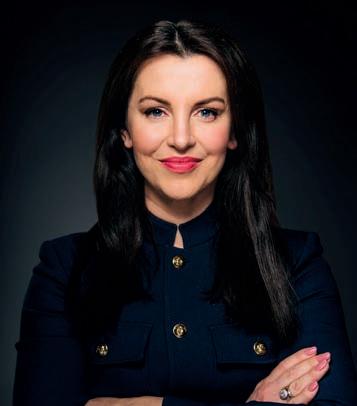
WBJ.PL 45
Get a Polish business news briefing in English delivered to your inbox each weekday before 9:00
Scan code & Sign up now for a no-obligation 2-week trial.

TECH insights

Creotech is likely to use SpaceX's Falcon 9 rocket to launch Earth observation satellite
Creotech will probably use SpaceX's Falcon 9 rocket to launch Poland’s first earth observation microsatellite EagleEye into orbit. EagleEye, a 50-kilogram satellite based on the HyperSat microsatellite platform, will be placed in a low orbit and provide high-resolution imagery of the Earth.
“We already have a rocket contracted to launch the satellite into orbit. It will probably be SpaceX's Falcon 9 rocket,” Creotech CEO Grzegorz Brona said in a statement. “We plan to launch EagleEye into Earth orbit at the turn of 2023/2024. Currently, everything is going according to plan. However, we have a second launch window prepared in the first quarter of 2024," added Brona.
Vice-President for Finance Maciej Kielek underscored that Creotech is observing a growing interest in its strategic products, primarily the HyperSat microsatellite platform.

>>>
WBJ.PL 47
WIKICOMMONS
ING Hubs Poland
SECTION PARTNER
TECH
ROBITICS
Asbis launches robotics segment, will enter new markets in Africa and Western Europe
Asbis Enterprises is launching a robotics business segment, and will enter Poland with a new offering later in 2022, according to Asbis CEO Sergey Kostevitch.
The group also wants to enter new markets in Africa and Western Europe in 2022-2023, Kostevich announced.
"In the case of Africa, we expect our revenues to reach $100 million in 2022 and grow to $250 million next year," the Asbis CEO said.
ROBITICS
Polish innovations conquer global markets
Last year nearly 80% of companies operating in Poland were innovatively active, according to the Polish Agency for Enterprise Development (PARP). In previous years, this figure stood at around 30%. This increase means that during the pandemic, there was a surge in investment in innovation among Polish companies. As a result, many of them today boast innovative products that successfully compete in foreign markets.
"The basis for success in the market is an innovative product that responds to real customer needs, but that's not all. You also need the right time and place for this product to appear. So it's important to meet customer needs with this innovative solution, but also to present it at the right time, and show this product on the market in the right way," Izabela Banaś, deputy director of the Analysis and Strategy Department at PARP, said.
ROBITICS Movie Games sold its stake in Drago Entertainment
Movie Games has sold its stake in Drago Entertainment to an investment fund, the company said, adding that the deal isn’t ending its cooperation with Movie Games as a publisher. The price was set at PLN 30 per share, meaning the total
ROBITICS Metaverse property market attracts investors


By the middle of this year alone, more than $120 billion had flowed into the metaverse, more than double the total for all of 2021. 79% of its active users have made purchases in it in the past 12 months, and 13% have set their sights on buying a virtual property, according to a McKinsey & Company report. One of the most promising segments of the metaverse is virtual real estate – last year, the value of transactions in this market exceeded $500 million. According to experts, the metaverse has enormous potential for real estate brokers and agencies who are seeking to expand their business into the virtual world. However, some experts warn that virtual real estate could just as well turn out to be another financial bubble.
"We are seeing a big jump in the metaverse market at the moment. Big brands and famous people are joining it. Examples include rapper Snoop Dog, who built himself a home in a metaverse, but we also have influencers and a number of brands known, for example, from the fashion world, for whom hosting events and entertainment is a way to attract ordinary people to this virtual space," said Julien Carbonnell, founder of Land Minis3, an expert on NFT and blockchain technology in real estate.
deal value amounted to more than PLN 3.25 million.
"Drago has gone through the entire investment cycle, and we are very pleased with our cooperation over all these years," Movie Games president Mateusz Wcześniak said in a statement.
In a separate announcement, Drago Entertainment announced that Agio Smart Money Closed-end Investment Fund represented by AgioFunds Towarzystwo Funduszy Inwestycyjnych had exceeded a 5% stake in the company.














ROBITICS Consumer watchdog: PayPal may use prohibited contractual provisions
The Office of Competition and Consumer Protection (UOKiK) has initiated proceedings against PayPal, saying the company may use prohibited contractual provisions in standard contracts.














The allegations concern three provisions of the "PayPal User Agreement": a list of prohibited activities, a list of sanctions and a ban on using an account when it is blocked or suspended.
According to UOKiK president Tomasz Chróstny, the conditions may lead to a gross disproportion of rights and obligations between the consumer and the company. The consumer watchdog says that prohibited activities are described imprecisely, without specific examples or explanations of complex concepts.
48 DECEMBER - JANUARY 2022/23 WARSAW BUSINESS JOURNAL
PRESS MATERIAL
WHAT IS AML AND WHY IS IT WORTH INVESTING IN?
"THE TRUE COSTS OF MONEY LAUNDERING CANNOT BE COUNTED, BUT WHAT WE KNOW ABOUT ITS IMPACT IS STAGGERING"
BY MORTEN LINDHOLM
What is money laundering?
The definition/term of Antimoney Laundering (AML) comes from the 20th century when money laundering became so crucial from the criminal perspective. Money laundering has been known about for hundreds or even thousands of years. Previously, criminal proceeds could be hidden from government autocrats and not be taxed or seized. Until a certain time in history, you could have almost as much money as you wanted, and no one was interested in where it came from – whether you had stolen it, found it, or legitimately acquired it. But by the 20th century, people risked jail if they did not pay taxes on their income or have an explanation for how they acquired their funds. Thus, the definition of money laundering is creating the appearance of a legitimate source for the monetary proceeds of a crime.
WBJ.PL 49 PARTNER HIGHLIGHTS
>>>
The term "money laundering" comes from the US gangster Al Capone. He grew wealthy from the illegal production of alcohol and other organized crime activities. To avoid being connected with these crimes, he would pass money through a chain of laundries that he owned in Chicago. As this was a cash-based business, he was able to prove that his wealth was coming from the laundry chain.
The same is pretty much true today
One of the methods for hiding illegal funds from the proceeds of a crime is to cover it up through seemingly legitimate transactions in shell companies, front companies, or legitimate companies where the unlawful funds are co-mingled with legal monies and then reported as coming from legitimate business activities.
So what is Anti-money Laundering?
Anti-money Laundering (AML) encompasses all the countermeasures that link seemingly-legitimate criminal proceeds with their actual origin and then connect them to the perpetrators.
For example, imagine you are combating drug trafficking or organized crime. If you can cut the criminals off from the source of their funds so they cannot use them, you eliminate any reason for them to commit the crimes. Unfortunately, statistics show that most criminal activities are committed for illegal profits.
When you organize proper and effective AML measures, you can cut the criminals off from the source of their funds. Also, once you find them and seize the proceeds of the crime, you can protect society and the economy from the impact of the crime. That is the primary reason why AML is increasing in importance.
Criminal activity is similar to regular business
Most commonly, you run a business to acquire profits. The same goes for illegal business activities. If the profit margin related to the risk that criminal law enforcement can catch you is narrow, then it is not worth committing the illicit activity.
For example: Let us look back at the moment when the European Union grew to encompass 27 countries. Just through the extension, the EU suddenly had access to harbors and shores along the Black Sea, which were quite far away from" old" European countries. This meant that criminals no longer needed the ports on the North Sea to get drugs into Europe, i.e., Rotterdam or Amsterdam. The bribes needed for the custom officers in Black Sea areas were also approximately four times cheaper than in Rotterdam. Drug traffickers were able to optimize the costs of bribery and corruption through the Black Sea, increasing the profitability of their drug smuggling.
So how big is the problem of the grey economy?
It's a massive challenge in many dimensions. It doesn't only impact the spending of public funds on enforcement or monitoring.
For example, take a look at the fatalities caused by drug trafficking. Drug overdoses kill approximately 10,000 Europeans every year. But when you add in the effects of extra criminal activities that occur due to drug trafficking, the total number of fatalities
increases by another 10,000 deaths every year.
Drug trafficking is a significant source of laundered funds, so this area is a crucial focus for antimoney laundering activities. But think about how many resources are being invested in solving this issue. And don't forget the victims of other financial crimes, where in the best case, they just lose the funds they've been working hard to gain. If we spoke about the economic scale of this, it's estimated that 2%-5% of GDP globally is laundered annually. This is why anti-money laundering is so essential. We are fighting to reduce the significant amount of money earned on crime and eliminate its negative impact on all of us.
Have cryptocurrencies made money laundering easier?
People might argue, especially those from Fintech and the cryptocurrency market, that you can track the code when you have a blockchain. But there needs to be a more effective compliance framework. The fact that you can track Bitcoin and the code of the blockchain on which the Bitcoin is operating does not resolve the whole situation. A certain level of anonymity is built into the system.
For example, when the Ukrainian crisis emerged, many Russians fled from Russia with their funds. They transported their funds out of Russia and out of the reach of Putin via Bitcoin, diamonds, and cash. Who knows where those funds are now?
50 DECEMBER - JANUARY 2022/23 WARSAW BUSINESS JOURNAL
TECH
AML IS FIGHTING TO REDUCE THE SIGNIFICANT AMOUNT OF MONEY EARNED ON CRIME AND ELIMINATE THE NEGATIVE IMPACT ON MANY LIVES AND PEOPLE.
AML – ARE WE DOING ENOUGH?
WBJ INTERVIEWS KAROL WOJTCZAK, AML EXPERT FROM ING HUBS POLAND, ABOUT THE ROLE OF TECHNOLOGY IN DEVELOPING AML COUNTERMEASURES AND WHETHER GLOBAL MONEY LAUNDERING CAN EVER BE SUCCESSFULLY REDUCED.
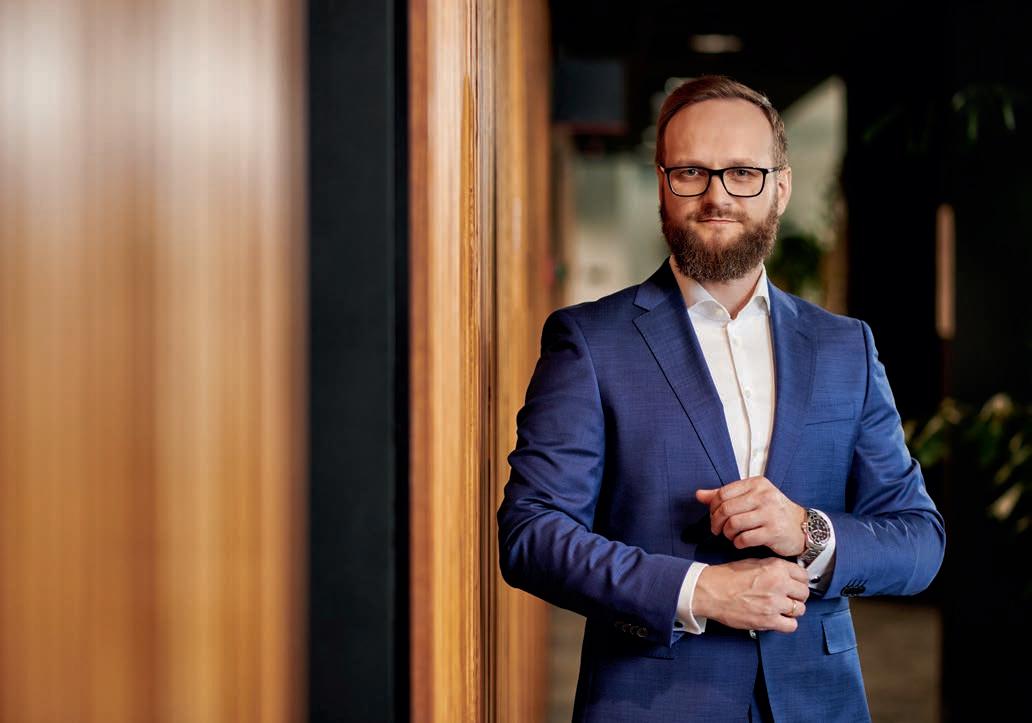 INTERVIEW BY MORTEN LINDHOLM
INTERVIEW BY MORTEN LINDHOLM
How big is the money laundering problem, and is it growing?
Over the past ten years, it's been discussed that approximately 2%-5% of global GDP is being laundered every year, and as GDP grows, so does the issue of financial crime in nominal terms.
There has been such a massive investment in new regulations over the past ten years in anti-money laundering that some banks are asking whether it's still profitable to operate in certain jurisdictions due to the cost of compliance departments and Know
Your Customer (KYC) requirements.
In my opinion, the market is overregulated for some entities, especially for banks and financial institutions. So, of course, someone from a regulatory standpoint will say, okay, we are regulating and even over-regulating because not enough progress is being made.
But the issue is whether we are doing things in the right way. Overregulating is not the answer to this situation. Instead, the answer is to improve cooperation, data sharing, and data quality technology
WBJ.PL 51 INTERVIEW
>>>
TECH
and strengthen public and private partnerships. The banks should be able to exchange certain data between themselves, although, of course, not any information that falls under the jurisdiction of the GDPR. However, it could be data that could be handled by safe data-sharing solutions and new technologies assisted by augmented intelligence.
What region(s) are doing and investing the most in AML? Europe is doing quite a lot for AML. For example, I recently attended a conference organized by Compliance. ai, a San Francisco company. The keynote speakers were from the US, and they mentioned that they were looking at Europe with envy, as the European Union is pressing forward on regulations through the 4th, 5th, and 6th [AML EU] Directive and other new EU initiatives, such as an AML agency that will launch in 2024.
Also, in the European Union, we have seen certain essential changes in public-private partnerships and technology, i.e., in Europe's northern countries or the Netherlands. It seems as if this partnership is starting to play a more significant role, and some types of sandbox solutions are being tested. Also, questions are being asked, such as how can we share certain data to help each other increase the effectiveness of our antimoney laundering activities?
Can you give me an example?
A recent court sentence in The Netherlands shows that there has been a shift in the way we are allowed to use technology for effective anti-money laundering.
Technology already gives us the benefits of machine learning, artificial intelligence (AI), black box, etc. For example, you can drop data into a black box, and machine-learning models generate results. But according to compliance and regulations, we cannot simply throw bank data into a black box and obediently act
when the machine says: "This is suspicious," or "this is not suspicious."
In the example from the Netherlands, the DNB National Bank asked Bunq Bank to change their AML processes because they had been using technology and machine learning and could not explain how they reached their conclusions from the beginning to the end.
They were using AI, so they could explain everything up until they put their data into the black box/ML model. Unfortunately, there is no way to know what's going on in the black box. When machine learning models issue a result, there is no way to understand the exact reasoning behind the answer.
The National Bank of Netherlands decided this process was unacceptable from a regulatory perspective and asked the bank to change its procedures. But the bank took the matter to court, and the court agreed with Bunq Bank, saying that you cannot assume that the black box is an improper solution because there is a chance that it may deliver wrong results. If you cannot evaluate whether the results are materially incorrect, there are insufficient grounds to penalize the financial institution.
The issue here is that if you are correct, then great. With this technology, you won't have to spend much money on anti-money laundering measures. But what happens when you are wrong? Then everything becomes a problem—lookbacks and remediations will be required, and you'll need to pay a fine because money laundering occurred in your institution. Big financial institutions cannot afford to bet on a single solution. This is why regularly evolving anti-money laundering solutions are often developed in parallel to AI/ML solutions. So, I hope, with time, that the gravity of AML will move toward more effective tech solutions.
Why do financial institutions have such a huge responsibility
in this? What about other companies? How do the rules apply to them?
The second article of the Polish AML Act, contains 25 points that explain the so-called "obliged institutions." Of course, financial institutions are only a part of these, but they handle a significant percentage of the money. According to estimates, only 10% of the money that is laundered actually goes through financial institutions such as banks and credit institutions. You can launder money through financial brokers, real estate agencies, lawyers, and professionals - they are all also obliged institutions. Then you have cryptocurrencies. And FinTechs. The vast majority of these are also obliged institutions and need to have appropriate AML measures in place. But still, regulators are more strict on financial institutions. However, this is changing nowadays, as can be seen in the third supranational AML/CFT risk assessment by the European Commission.
You said only 10% of the money goes through financial institutions.
Yes, this is because of financial institutions' effective countermeasures. You must register each transaction above $10,000 or €15,000 and provide your data when opening an account. So it's difficult to be anonymous through a financial institution such as a bank. However, in some FinTechs, you can open an account on your mobile phone. Or buy Bitcoin without being registered. So these are attractive options for criminals because they enable them to create a wall of anonymity.
But how can you ever reduce the black economy from 5% to 3% of GDP? It must be impossible if the bank or financial institution transactions only count for only 10% of the 5%.
Correct, if you look at the catalog of those obliged to apply AML coun-
52 DECEMBER - JANUARY 2022/23 WARSAW BUSINESS JOURNAL
termeasures, it includes the agencies and entities I've just mentioned. However, most of the money is elsewhere, such as in companies trading diamonds or gold. Plus, there is trade with the so-called dual usage goods, like fertilizers for agriculture, which you can make into a bomb. There is also the trade in radioactive materials.
Businesses are increasingly being regulated as well. So now, for example, in the diamond industry, new regulations are supposed to prevent criminal activity.
I would like to understand more about the situation in Poland.
So for Poland, there are two perspectives, The first is a strictly local perspective, and in this, we are improv-
We ensure that we remain very effective in the technology we employ. This means that we are investing in our processes from a technology standpoint and are focused on optimizing to advance the technology to ensure effective anti-money laundering. So we protect our clients, we protect the franchise, and we protect the bank.
We develop our approach to shared services in the same way as well. We are always bearing in mind our global capabilities. Our anti-money laundering unit is comprised of a significant group of experts, including analysts in Poland, Slovakia, and the Philippines. We are using our capabilities and experience in these different locations to develop effective solutions for the organization as a whole.
ING's Know Your Customer (KYC)
THE ANSWER TO AML IS TO IMPROVE PRIVATE-PRIVATE AND PRIVATE-PUBLIC COOPERATION, DATA SHARING, AND DATA QUALITY TECHNOLOGY TO STRENGTHEN AML
ing from a regulatory perspective. The Polish regulators are starting to learn quite fast, the regulations are getting better at being in line with the European Union Directive. But it is also true that Poland is the global hub for AML shared services, so we have access to some great experts.
An estimated 42,000 AML experts work in Poland, many of whom are working for international institutions. I have worked for ING for over 2 1/2 years, but it feels like five because the development has been very dynamic, as we need to be quick and efficient to deliver effective solutions.
What are the countermeasures for money laundering at ING?
At ING Hubs, we operate as an organic extension of the business and keep the client at the center of all we do.
is governed from the very top of the organization. The Chief Operations Officer is the first line of defense, and compliance is the second line. Regarding KYC, effective operations and state-of-the-art technology enable us to cascade compliance risk ownership and management down throughout our organization.
We are very ambitious about the future of KYC. Since 2018, ING has changed a lot. Looking at the experts here, the pace of changes in ING, and the appetite for effective KYC, it's clear that we are starting to be globally competitive in terms of the effectiveness of our AML. We will progress further in the next 2-3 years until we reach the top. That is my aspiration.
So I hear that winning battles against the bad guys is the goal
of your AML, yet the bank can also not afford big fines. But is it really worth such an enormous investment?
Absolutely. But again, we do it because it is the right thing to do. So, yes, ING invests a lot. But in our company, from the CEO to each KYC analyst, we understand the importance of effective AML risk management. We also know how to build KYC's future and are working hard to get there.
We have also built a partnership with ACAMS, the AML certification company. They created a unique program in partnership with ING, further developing the portfolio of available certifications and building something new in the certifications market. So currently, ING is one of the best-AML-certified banks worldwide.
I'm leading the section related to transaction monitoring in the KYC at ING Hubs Poland, but my responsibility includes cooperation and building the global experience for the best way of working and best practices in the hubs in Slovakia, Poland, and Manila. So we are delivering the service globally, one single service under one set of procedures with one technology to manage it and do it purposefully.
Let's end on a positive note. Is there a chance for a breakthrough and improving the effects of anti-money laundering – what do you think?
I would end on a positive note. The hope is there, but we need to be mindful of the state of the current crises. We still have a global political crisis, a pandemic, and the war in Ukraine. Let's hope it will all settle down and things will get better. After all, as I said earlier, crises usually fuel financial crime.
I see already that specific solutions will impact the 5% of GDP being laundered and may even reduce it to 4.8% or 4.5 %, or maybe, at some point, even 4%. Technology gives us an unprecedented opportunity to succeed when taken in cooperation with all the market experts and corporations. I am hopeful.
WBJ.PL 53
INTERVIEW
BONARKA’S OMNICHANNEL E-MAGAZINE TRIUMPHS WITH ICSC’S SOLAL SILVER AWARD
AS CONSUMERS INCREASINGLY ENGAGE WITH BRANDS ACROSS MANY CHANNELS, MALLS ARE STRUGGLING TO DIGITALLY COMMUNICATE A BRICK-AND-MORTAR EXPERIENCE. IN ADDITION, POST-PANDEMIC CONDITIONS REQUIRE INNOVATIVE STRATEGIES WHEN INTRODUCING A NEW FORM OF BRAND STORYTELLING INTO THE DIGITAL WORLD.
The International Council of Shopping Centers (ICSC) recently recognized Krakow’s Bonarka shopping center’s e-Magazine as a successful and innovative strategic response to this omnichannel challenge.
MOVING USERS FROM DIGITAL TO PHYSICAL
Bonarka e-Magazine is a digital platform conceived in response to changing customer behaviors and needs. Featuring an original combination of online games and shopping and lifestyle content, the e-Magazine enables customers to collect loyalty points as they enjoy contests, videos, and animated materials that

transfer users directly to tenant offers. This is all presented in an attractive 1980s-90s retro-gaming interface that is optimized to leverage digital-channel engagement, reinforcing the customer's experience and commitment.
A STRATEGIC APPROACH
Fashion inspirations, practical health and beauty tips, promotions and discount coupons are all included in the gaming platform and align perfectly with the retro gaming look and feel. As part of Bonarka Shopping Play's omnichannel strategy, the digital media was supplemented by promotions in social media profiles and the e-Magazine.
54 DECEMBER - JANUARY 2022/23 WARSAW BUSINESS JOURNAL
IMAGES COURTESY OF VALKEA MEDIA
TECH
STRATEGIC OBJECTIVES:
• Create a new digital brand image by developing a cohesive omnichannel brand tactic.
• Create an omnichannel tool to accompany customers at every stage of their purchasing journey, building commitment and loyalty, as well as creating unique shopping experiences.
TACTICAL TARGETS:
• Create an interactive platform combining online and offline shopping through maximum use of physical and online touchpoints.
• Increasing the participation, activity, and engagement of online customers
The e-Magazine became a digital gaming platform with an immersive retro game experience. The use of characteristic graphic icons, combined with original visuals and content motifs was deliberate and provocative.

LEVERAGING INTERGENERATIONAL SENTIMENT
The look and feel of the e-Magazine deliberately evoked memories and experiences shared by older consumers, however, it also appealed to Gen Z consumers by offering trendy old-school activities and games. This simple approach was then able to incorporate shopping and lifestyle into the retro game universe. On a communications level, it introduced a new message dramaturgy, strengthening the storytelling and emotional impact.
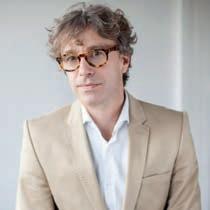
TOP PRIZE WINNER

The ICSC recognized that the idea was not conventional advertising but was instead a highly original and creative concept. Drawing upon sentimental memories of Pac-Man or the immortal Super Mario turned out to be an award-winning way for the e-Magazine to engage with their audience and show their tenants' offers in an unconventional way.
If your brand could use a fresh perspective, get in touch with us: jkamecki@valkea.com, tel. 502 290 260
WBJ.PL 55
Jerzy Kamecki Stratregic Consultant at Valkea Media – a marketing agency in Warsaw
MARKETING INSIGHTS
strategy / creation / social media / digital / custom publishing / events / PR strategy / creation / social media / digital / custom publishing / events / PR
Life + Style
THAT HOLIDAY FEELING
If you’re looking for the perfect gift or to treat yourself to something luxurious, a trip to Designer Outlet Warszawa is a must for the essential shopping experience.

WBJ.PL 57
HOLIDAY
(Previous page)
Benetton striped sweater
(zł. 359 reduced to zł. 259)
Benetton pants
(zł. 259 reduced to zł. 179)
Tefal cake roller
(zł. 99.90 reduced to zł. 79.90)
Duka platter
(zł. 279 reduced to zł. 169.90)
(this page, clockwise from right)
Desigual plaid coat


(zł. 869 reduced to zł. 609)
Castellani turtleneck
(zł. 1,250 reduced to zł. 875)
Coccinelle hat
(zł. 299.90 reduced to zł. 209.90)
Underwear Hunkemöller panties

(zł. 69.90 reduced to zł. 48.90) bra
(zł. 154.90 reduced to zł. 107.90)
Ochnik shirt
(zł. 179.90 reduced to zł. 99.90)
Villeroy & Boch Christmas ornament
(zł. 109.90 reduced to zł. 69.90)
Sweater Benetton
(zł. 339.90 reduced to zł. 237.90)
Benetton pants
(zł. 259.90 reduced to zł. 185.90)
Ochnik shoes

(zł. 419 reduced to zł. 299.90)
Ochnik hat
(zł. 79.90 reduced to zł. 49.90)
Calvin Klein/W.Kruk watch
(zł. 1469 reduced to zł. 849)
58 DECEMBER - JANUARY 2022/23 WARSAW BUSINESS JOURNAL
PHOTOGRAPH PREVIOUS PAGE COURTESY OF NUTA, THIS FROM LEFT TO RIGHT KEVIN DEMARIA (2), COURTESY OF NOLITA
Piaseczno | Puławska 42E designeroutletwarszawa.pl
Pop Up, Pop In Uniqlo enter Poland…
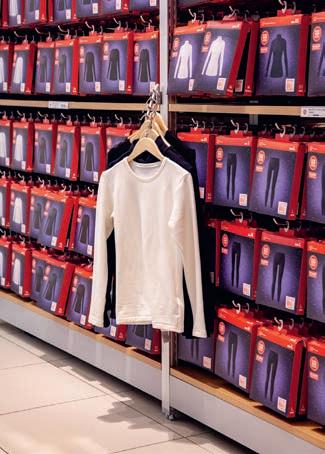
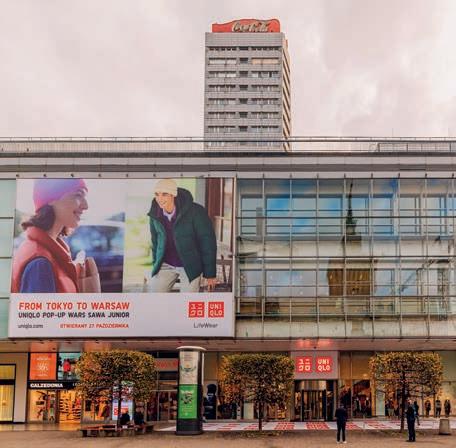
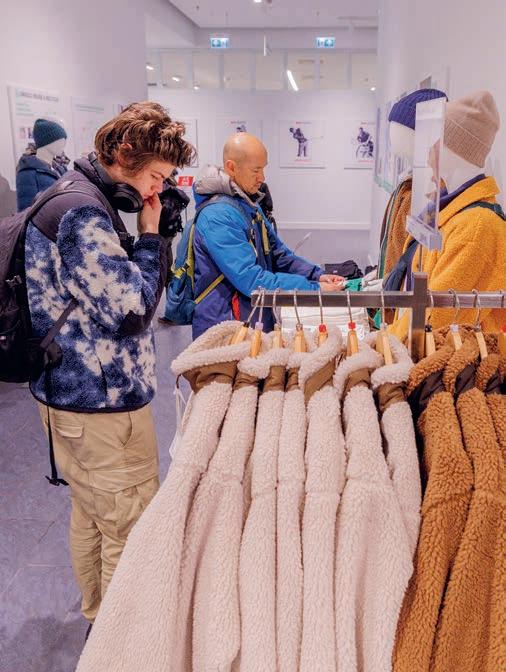
An amalgam of ‘unique clothing’, the Uniqlo clothing label has finally found its way to Warsaw courtesy to a pop-up in Wars Sawa Junior. “Shirts, jumpers and jeans aren’t just basics,” say the brand, “they live with us as part of our daily lives – we believe that such essential items can be made even better.”
Founded in Japan, Uniqlo have forged a name for their ‘LifeWear’, apparel created from their Japanese values of simplicity, high quality and longevity. Placing an equal emphasis on affordability, their Warsaw venture is already conquering the market with their lightweight ‘heattech items’, fleeces and down outerwear.
UNIQLO
Wars
WBJ.PL 59
Sawa Junior (Marszałkowska 104/122), uniqlo.com
Heattech Ultra Warm T-shirt Crew Neck Long Sleeve, 129.90 PLN
Windproof Fleece Jacket, 249.90 PLN
8 ESSENTIAL WINES FOR YOUR HOLIDAY TABLE
When planning your holiday menu don’t forget to pair your dishes with the perfect vintage. Wine expert and negociant Peter Pulawski of Dobre Wina Sp. z o.o. offers recommendations for eight special wines that will pair perfectly with classic Polish and international Christmas dishes.
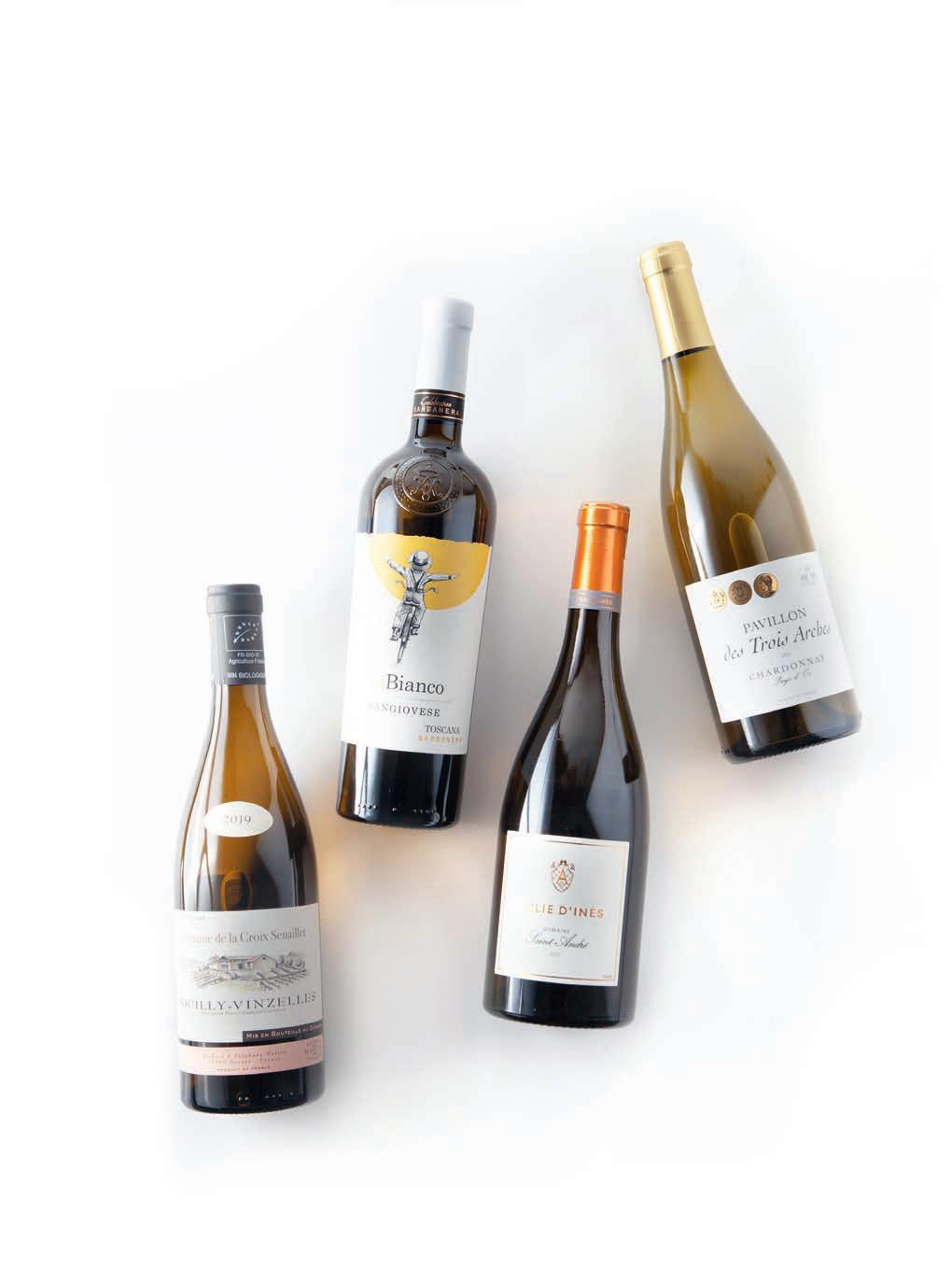
(prices ranging from zł. 46,90 to 149,00)
Pierogi (Polish) – with cabbage and mushrooms. Will also pair well with fried carp and Ryba po Grecku
A Languedoc, yet this one features a buoyant fragrance of pear, peach, and Mirabelle in syrup. This is a dry wine with a jammy body. It offers an extraordinary richness and length, supported by elegant notes of oak and spices from ageing in oak barrels.
A full-bodied mature white from Languedoc, France with oak handling. Offers juicy, oaky Christmas spices and vanilla in the aroma and low acidity sunny apricots and peaches in the taste. It has sufficient body to cope with Christmas days, cold meats, duck, and Schab ze Śliwką.
Fishes: seafood (Italian)
Will pair well with grilled, cooked and baked seafood and fish – and some raw crustaceans
Surprisingly rich and complex, yet simultaneously agile and joyful. Made from Chardonnay, in the Macon district – which has a typical minerality and elegant acidity, making this slightly oaked wine a treat in itself. A perfect accompaniment to grilled fish and seafood – as well as baked fish in creamy sauces.
A Tuscan white wine made from the Sangiovese grape (mainly used to make red wine). Fragrant with apples and pears and floral notes such as violets and slightly resinous/bergamot oils. Mild and fresh with low acidity – no oak handling. Refreshingly different.
60 DECEMBER - JANUARY 2022/23 WARSAW BUSINESS JOURNAL
DINING OUT
4. 2. 1. 3.
3. Domaine Saint Andre Folie d'Ines Blanc
1. Domaine de la Croix Senaillet Pouilly Vinzelles
2. Barbanera Sangiovese vinificato in Bianco IGT Bianco Toscana
4. Pavillon des Trois Arches Chardonnay
Turkey (British)
Will also pair well with roasted chicken, Beef Wellington, and Yorkshire Pudding
A Primitivo from Puglia, Italy - from the genetic twin of the Zinfandel. Take time to savor this jammy plummy almost semidry sun-filled wine and its enticing aromas. This is easy to drink, yet also features a chunky smooth finish with a hint of dried herbs such as thyme, sage and rosemary.
Made primarily from the Merlot grape varietal. This elegant wine from the Pomerol area offers earthy notes of deciduous wood, forest fruits, and mushrooms.
Duck (Danish)
Will also pair well with roasted/baked pork with a crisp skin
An extraordinary wine from Languedoc, somewhat like a Chateauneuf-duPape but with the addition of a Cabernet Sauvignon. Featuring a convincing and seductive aroma with great depth and a pleasant complexity. Robust notes of dark fruits, some dried herbs, mild spices and a wonderfully long aftertaste.
The Barbera grape is grown midway between Torino and Genoa. Generous aromas of baked red and black fruits, particularly cherries, plums, and black currants. All are beautifully settled in the rich yet smooth taste of the same mature fruits with pleasant rural scents
All wines available through www.dobrewina.pl and www.classicwines.pl

WBJ.PL 61
8. 7.
5. 6.
5. Primitivo di Manduria Pacato
7. Les Creisses Rouge IGP Pay d'Oc
6. Vieux Chateau Gachet Lalandede-Pomerol
8. Barbera Piemonte Attimi di Barbera
The WBJ relives or looks forward to the most important events in the world of business and economy

THE FIRST WARSAW FOOD HALL SOCIAL WAS HELD END NOVEMBER THIS YEAR
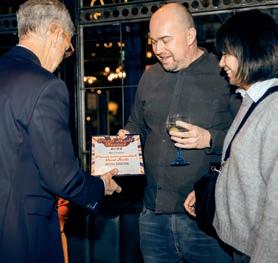
The event attracted the best of owners, operators, manager from the Food Hall industry and during the event award prizes to distinguished people and concepts from the sector was given.
The winners included:
Best Asian - Uki Uki Kikuya Tokio
Best Burger - Boston Burger
Best Bar - Bar Centralny Browary lub Fabryka Norblina
MVP - Aleksander Koffer-Likus & Micheal Motz
Best New Concept - Okarima Ramen
Best interior design - Elektrownia Powiśle

Best Food Hall - Fabryka Norblina
Most supportive vendor - Coca Cola
Most supportive alcohol - Bacardi Martini
Pioneer of Warsaw Food Hall: Marek Ignaciuk and Linh Nguyen
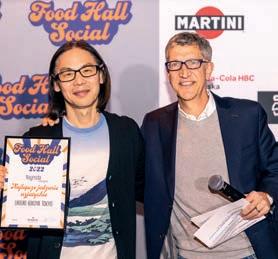
Sponsors


MULTINATIONAL INVESTMENT CONFERENCE WARSAW

The Bosco Conference InvestPro Poland & Ukraine conference was held in Warsaw on 9 November and attracted more than 200 delegates.
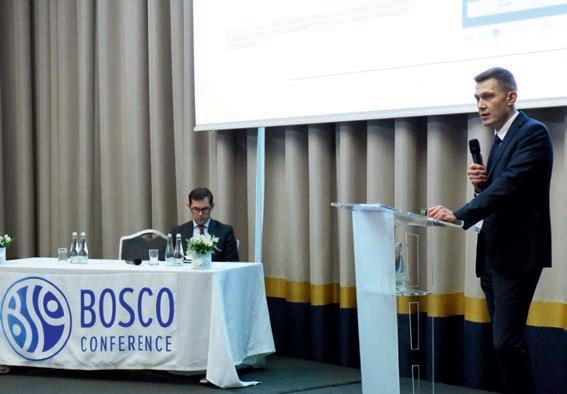
The conference was devoted to international investment, finance, wealth management and asset protection, and building global business structures. More than 200 delegates from 20 countries attended the conference. It was an excellent opportunity for the participants to introduce their products, increase company recognition, discover more about investment projects, taxation, wealth management, immigration, banking, and asset protection, and expand their client and partner network.
Main topics of the conference
For investors seeking information about investment opportunities in Central and Eastern Europe, the conference offered sessions on “Poland - A growing international hub,” the “Recovery of Ukraine – a Polish perspective,” “Practical aspects of temporary business relocation to Poland through the prism of legal, tax, accounting and migration issues,” “Compensation for losses incurred by businesses as a result of Russian military aggression,” and “Hungary, European Tax Wellness.”
Other investment topics addressed at the conference included “Investment Opportunities in Real Estate,” “Capital Markets opportunities in Singapore as the leading Asian Financial hub for Private Wealth Management and Funds structures,” “Forming Swiss companies with a Crypto Wallet,” and “UAE Foundations.”
The next InvestPro Poland Warsaw will be held in 2023. Find more about Bosco Conference events at bosco-conference.com.


62 DECEMBER - JANUARY 2022/23 WARSAW BUSINESS JOURNAL PRESS MATERIAL
EVENTS
WARSAW - THE EUROPEAN EPICENTRE OF MODERN FOOD HALL INNOVATION
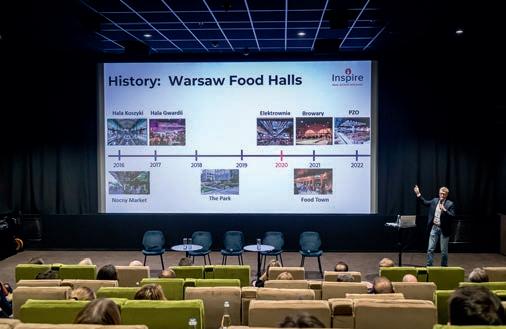
Hala Koszyki, Hala Gwardii, Elektrownia Powiśle, Norblin Factory and Browary Warszawskie vary in terms of food options, location, and tenant-mix, but the common success factor is the communities that they create.
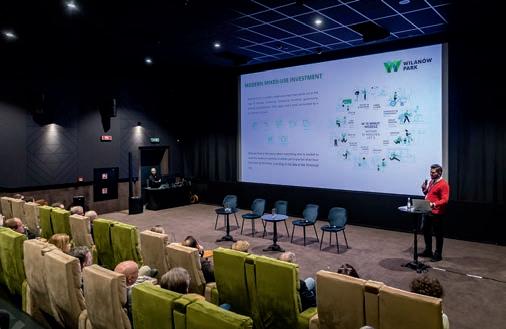
John Gabrovic, Founder and Managing Director of Inspire Real Estate Advisory, a man who is passionate about all things culinary, was the keynote speaker of the latest edition of ULI Poland’s “Places + Spaces” event. The title of his presentation – “Creating Community in Real Estate” – perfectly summed up the core of his retail philosophy. Community is everything, and he sees his role as “challenging conventional thinking about design and development of retail and mixed-use real estate. Without a sense of community, retail and mixed-use will quickly become irrelevant. Food halls –when done right – provide the community factor.”
The first thing to be clear about is that a food hall is entirely different from a food court. In a food court, it’s all about quickly satisfying hunger, he explained.
The food court was created in order to stop people from leaving the shopping center. ”A food hall, on the other hand, is “a collection of passionate street food vendors in a social dining atmosphere,” acting as anchors for mixed-use or retail projects. It’s a social dining and drinking affair. Yet the main reason a food hall is successful – other than the food – is the human factor. “It’s all about the people!” asserted Gabrovic.
“Today, we saw examples of many food halls, and as different as they are in terms of food options, location, and tenant-mix, there is one thing that connects them – community. Without creating the community, it wouldn’t be a success. Food halls are so much more than just food! They complete the idea of the 15-min city and become the epicenters of neighborhoods. They require a lot of investment, but it pays off in the end. They are the heart of the entire mixed-use project,” summarized Soren Rodian Olsen, ULI Poland Chair.
Next year will see more Places + Spaces events from ULI, starting with “The Future of Construction” – so stay tuned!
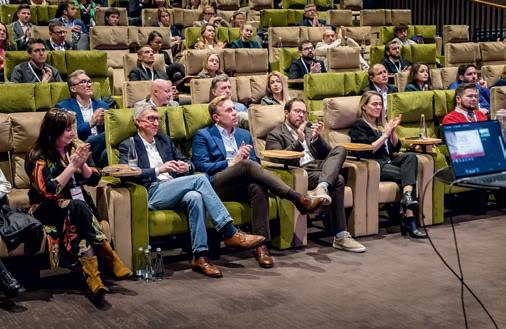
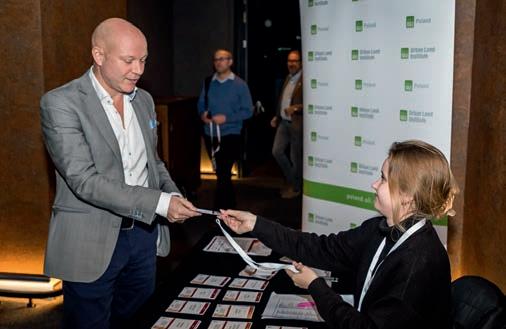
WBJ.PL 63
EVENTS
The WBJ relives or looks forward to the most important events in the world of business and economy
10TH EDITION OF THE EXECUTIVE INNOVATION FORUM
On 28 November, the 10th edition of the Executive Innovation Forum conference took place at the Sheraton Grand Warsaw Hotel.
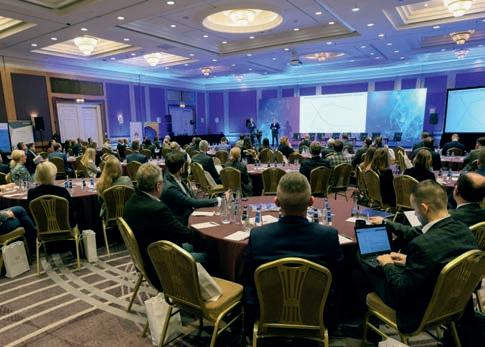
The event opened with a speech by Paweł Żuk and Paweł Kikosicki, entitled "Key digital innovations in the healthcare system" regarding issues concerning informatization and digitization of the health sector. Afterward, Pawel Stefanski delivered a presentation on comprehensive solutions for sensors, identification and image processing, and network technology.
Next, the first panel discussed the DNA of innovation in the corporate body, and the financing of innovative changes at the company level followed these. Subsequently, Dariusz Kwiecinski presented a case study entitled "Digital Transformation in practice" concerning the principles of successful digital transformation. In the second panel, the discussion addressed the steps needed to optimize an organization's operations and the role of digitization in business scalability. Finally, Ewa Giniewska also delivered a lecture on the most significant issues when applying modern technologies to the construction industry.
The forum included a unique panel on "Women's Leadership in the Age of Innovation," which raised serious questions on the challenges of science and technology and the need for responsive artificial intelligence. During the final panel discussion, i.e. "Startups - how to effectively support the development of Polish innovations?" the speakers addressed whether high subsidies must go hand-in-hand with the success of an innovative business.
ABSL DIAMONDS AWARDS 2022 WINNERS
ABSL awarded key projects in the business services sector
With over 400,000 employees, the modern business services sector remains one of the fastest-growing sectors of the Polish economy. The sector's share of total employment among businesses has risen to 6.2 percent. ABSL has been pointing out for years that attracting and retaining the best talent requires creating an inclusive organizational culture and workplaces created with respect for diversity in many dimensions, as well as companies taking strong action on social and environmental issues.
The idea of the ABSL Diamonds Awards is to honor companies that inspire, strive for business excellence and innovation, create attractive jobs and thus contribute most to the development of the business services sector and thus the economy as a whole.
Creating attractive jobs, creating long-term value for society, adapting to new work models, and job integration programs for people from Ukraine are just some of the categories of initiatives undertaken by business services companies recognized at the ABSL Diamonds Awards gala, organized by the Association of Business Service Leaders.
Eight projects in 4 areas were awarded at the 5th ABSL Diamonds Awards: Business Excellence, Vibrant Workplace, Talent Development & Education and Sustainable Business and ESG Strategy. A total of eight ABSL Diamonds were awarded to companies: Alcon Polska, Genpact Poland, GlobalLogic Poland, Hewlett Packard Enterprise Global Business Center, JP Morgan Poland Services, JTI GBS Poland, PPG Global Business Services Poland, MMC Group Services and PPG Global Business Services Poland.
The nominations and awards given to individual projects were decided by a jury consisting of: Olaf Babinet, Director Deloitte Consulting Global Location Strategy; Tom Bangemann, Managing Director ABSLDACH; Traci Freeman Managing Member, Believe Consulting oraz Debi Hamill CEO, IAOP.
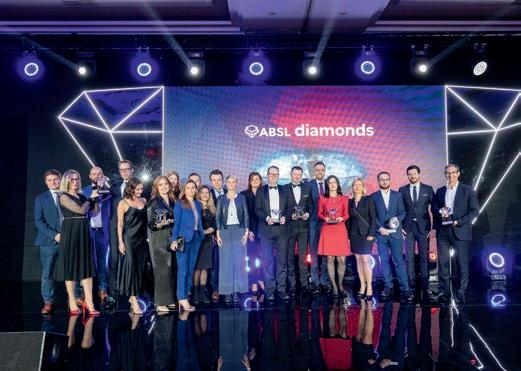
64 DECEMBER - JANUARY 2022/23 WARSAW BUSINESS JOURNAL PRESS MATERIAL


APARTMENTS,
MOTŁAWA
GDAŃSK 58 585 92 34 / BRABANK.PL
BRABANK
NEXT TO
RIVER,





















 Ministerstwo Kultury i Dziedzictwa Narodowego
Ministerstwo Kultury i Dziedzictwa Narodowego






 BY SERGIUSZ PROKURAT
BY SERGIUSZ PROKURAT

















 BY ANNA RZHEVKINA
BY ANNA RZHEVKINA


 BY ANNA RZHEVKINA
BY ANNA RZHEVKINA








 BY AGNIESZKA GRABOWSKA-DUBIEL
BY AGNIESZKA GRABOWSKA-DUBIEL











 INTERVIEW BY MORTEN LINDHOLM
INTERVIEW BY MORTEN LINDHOLM


























